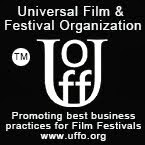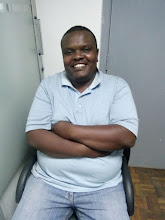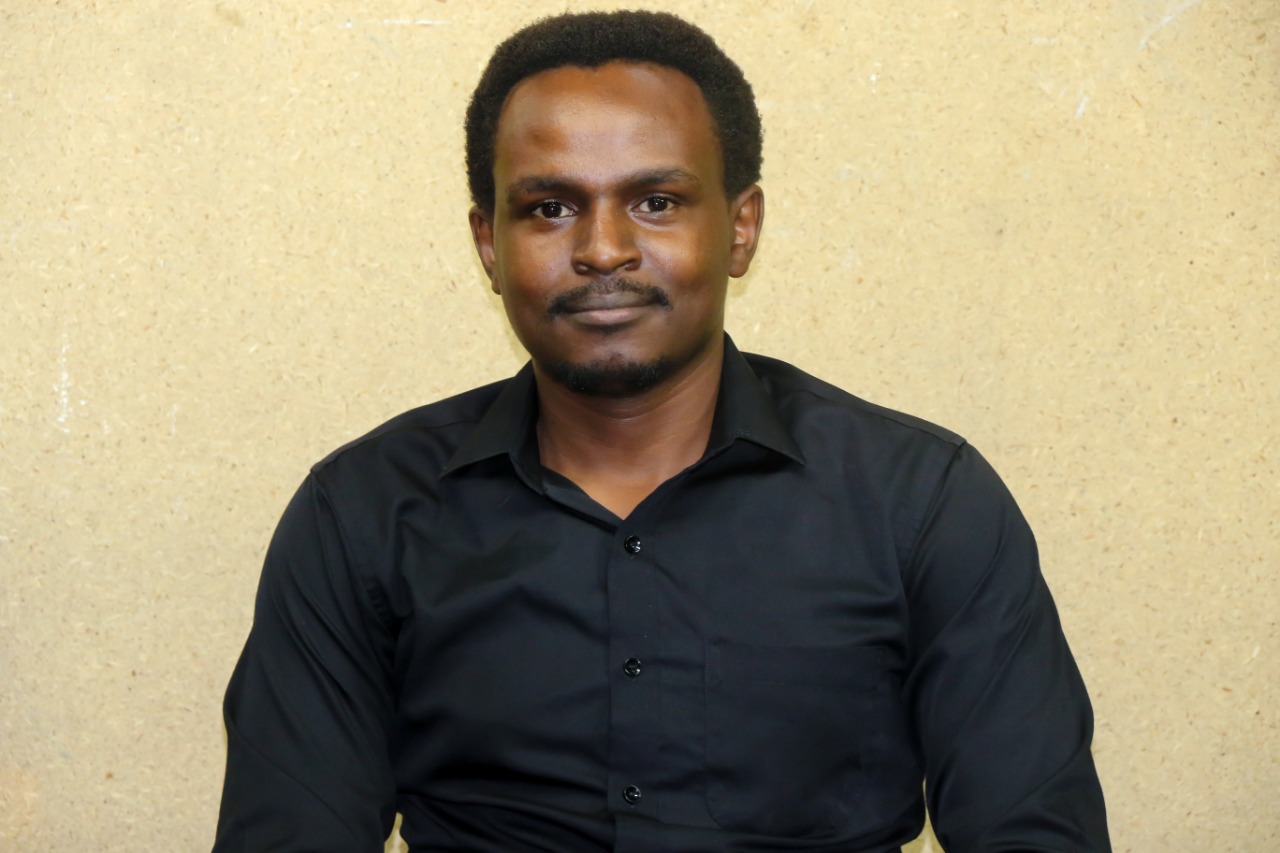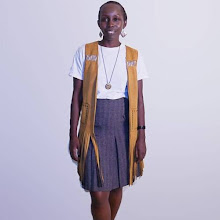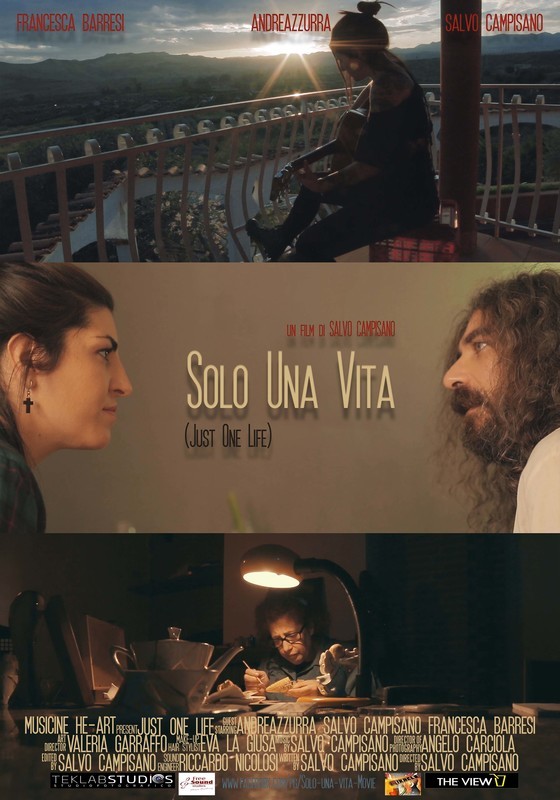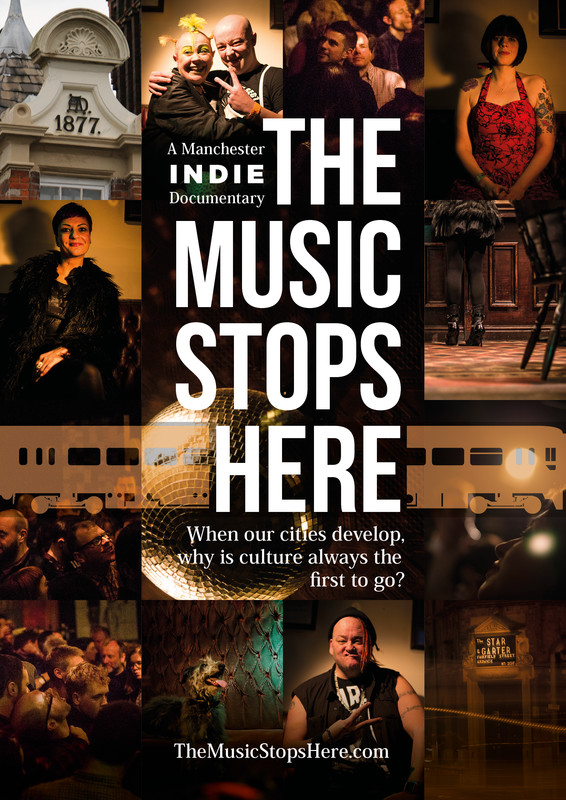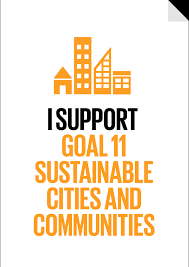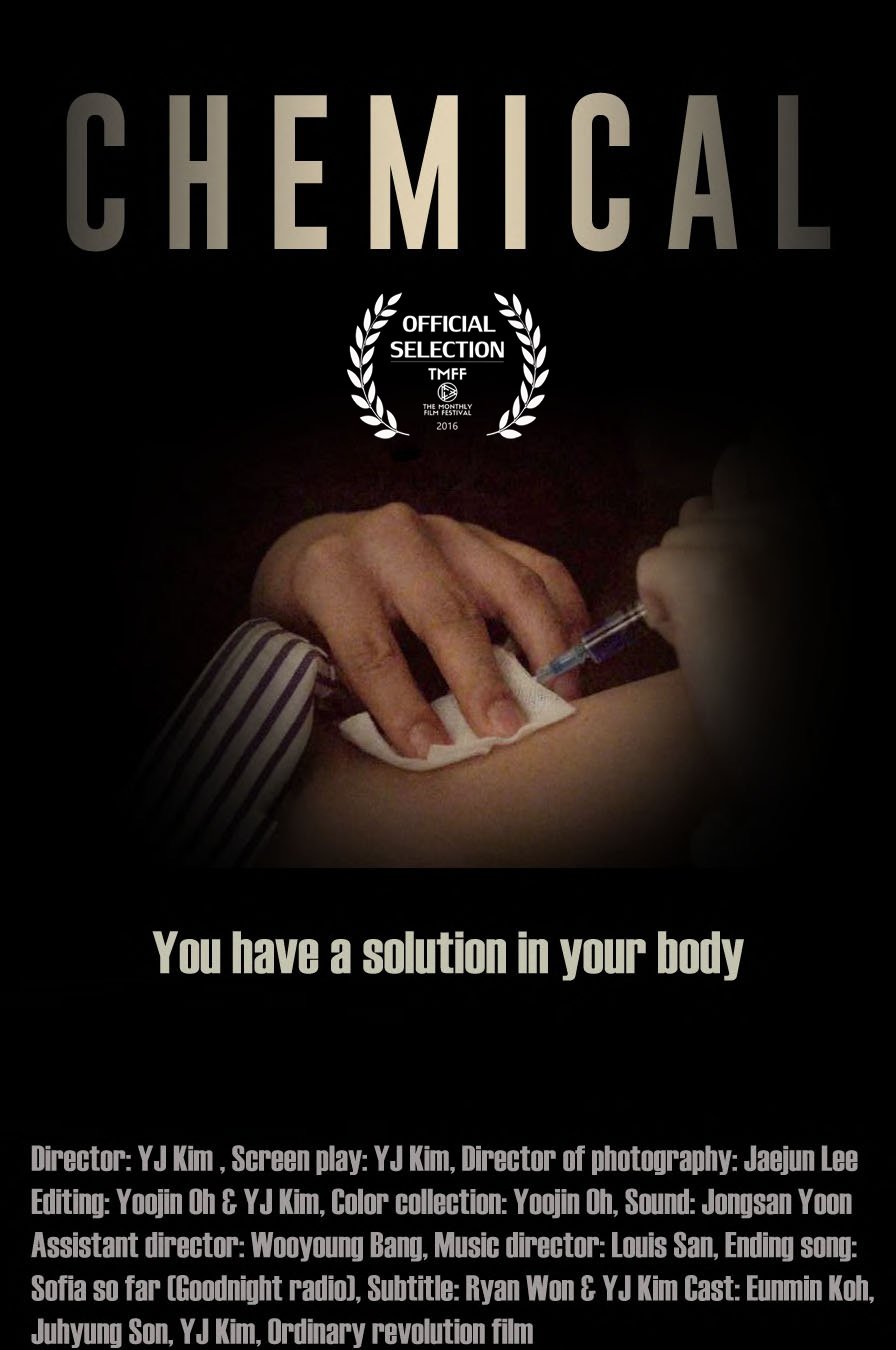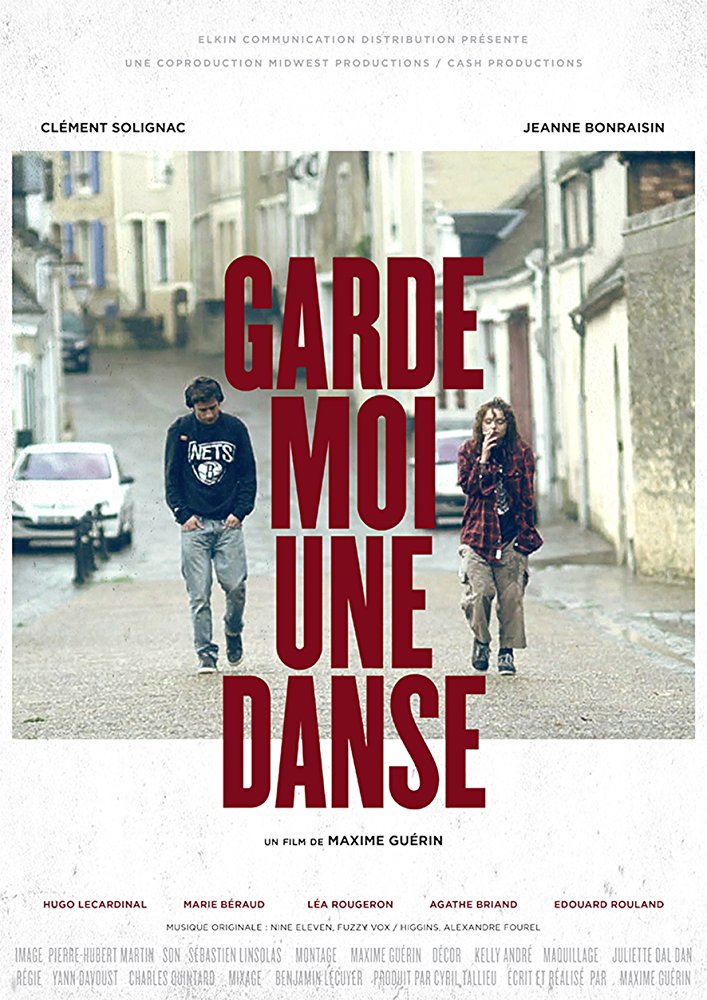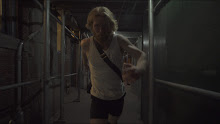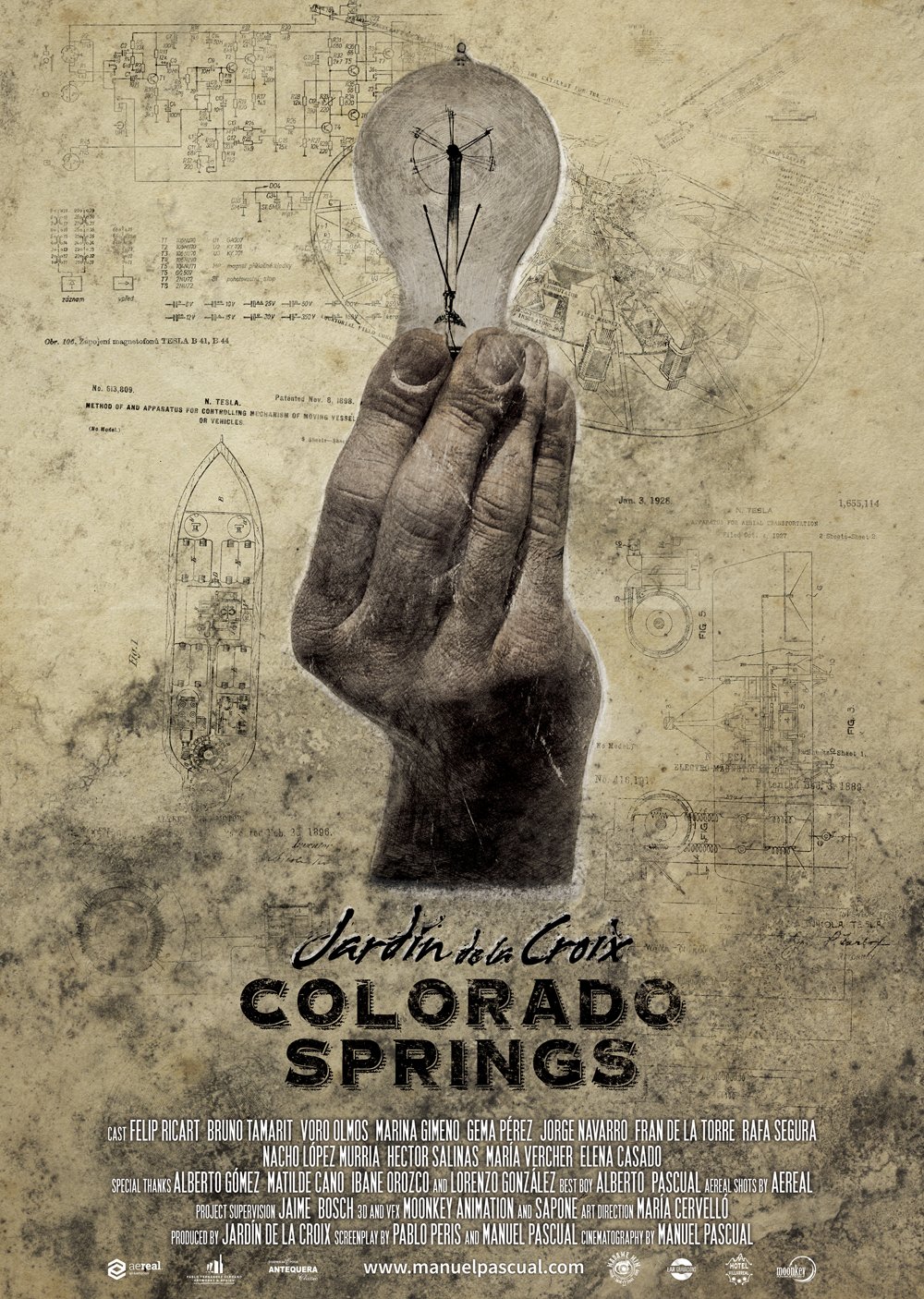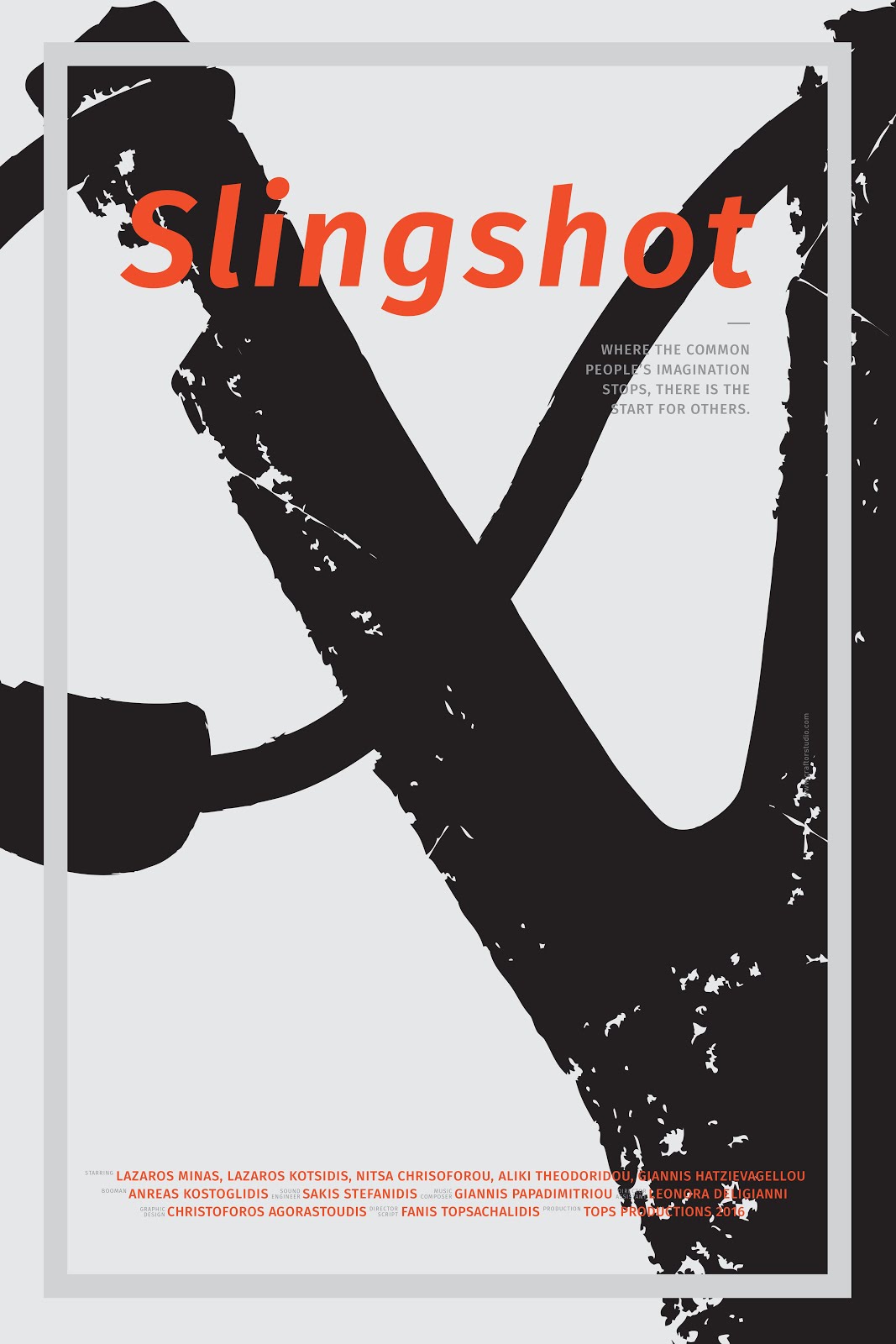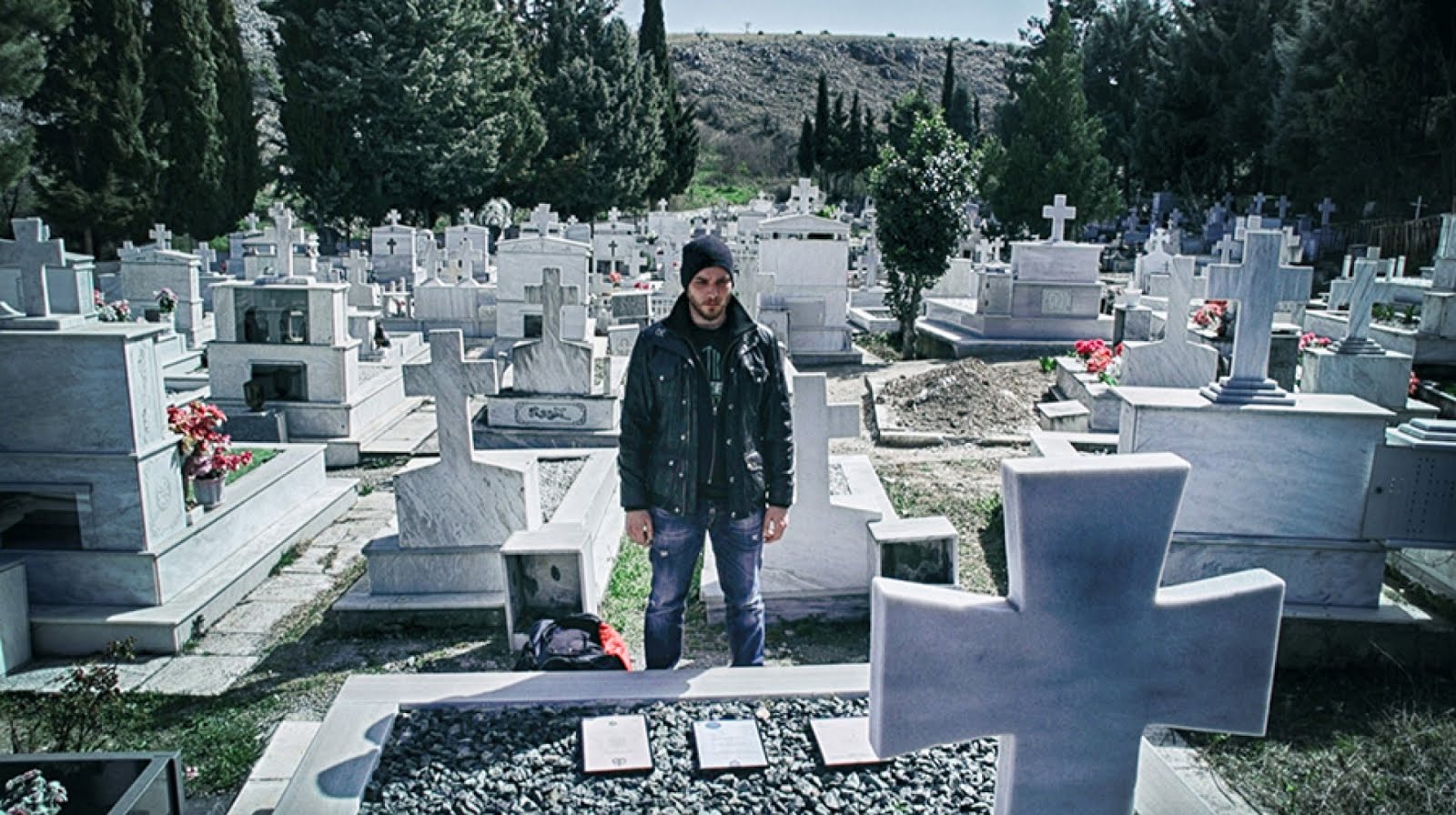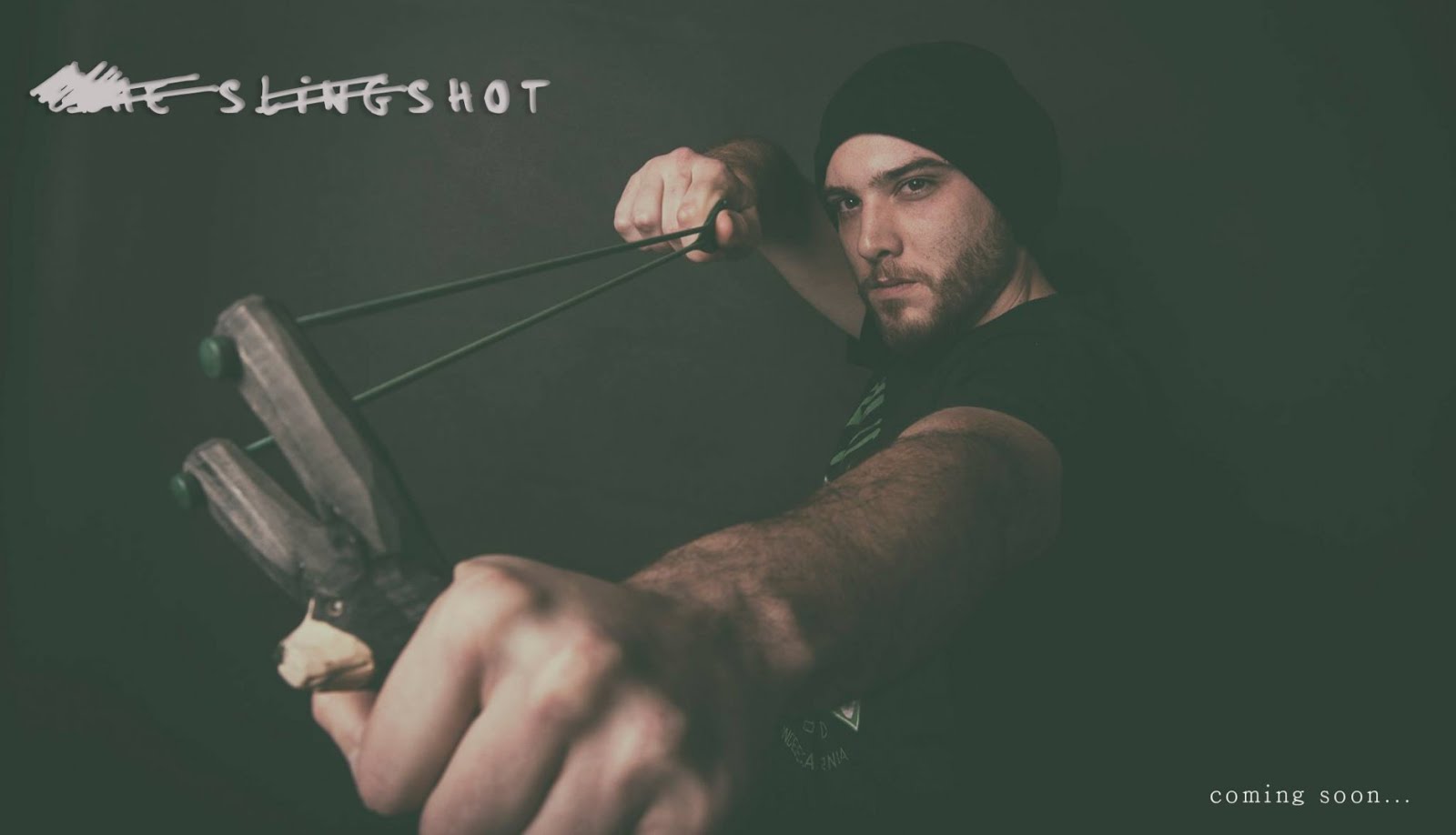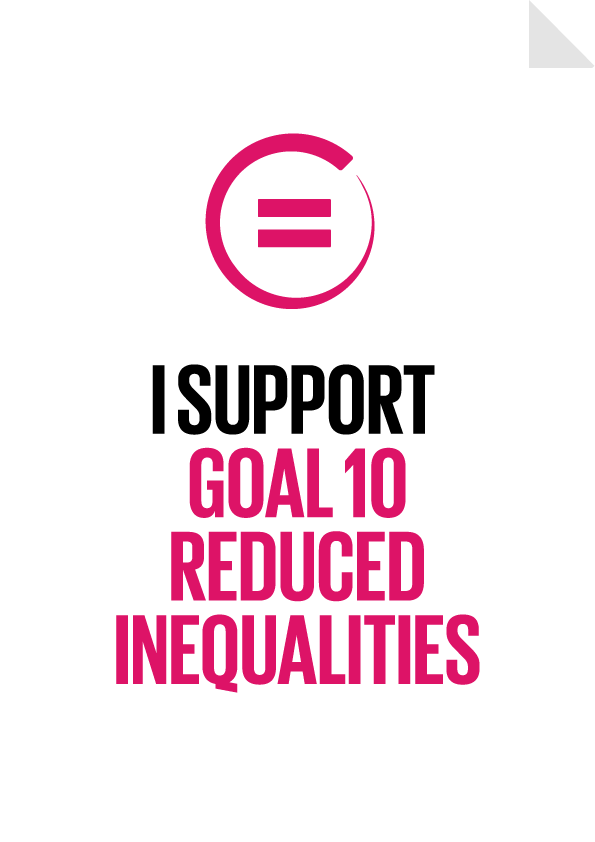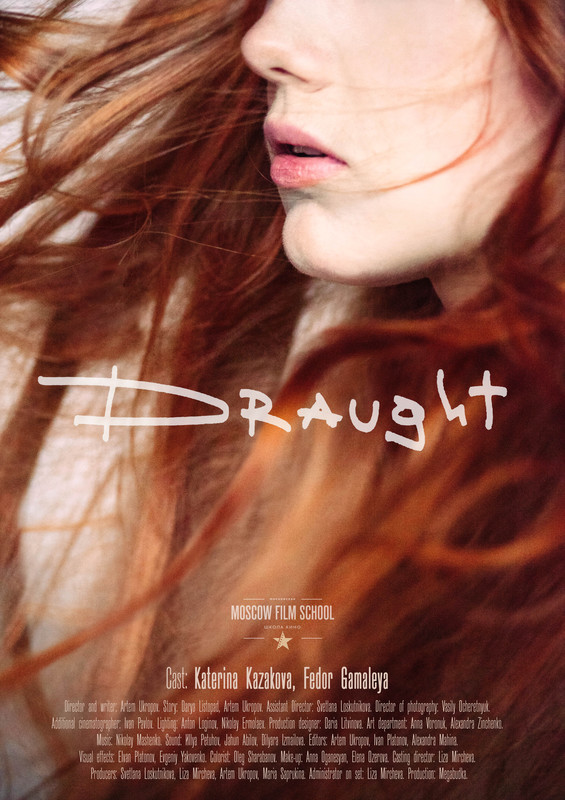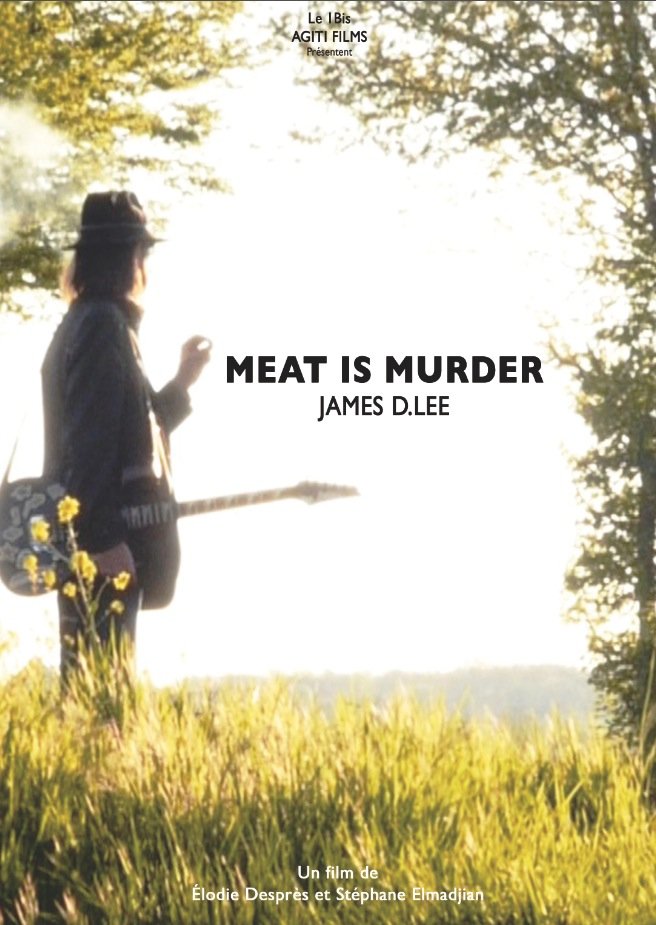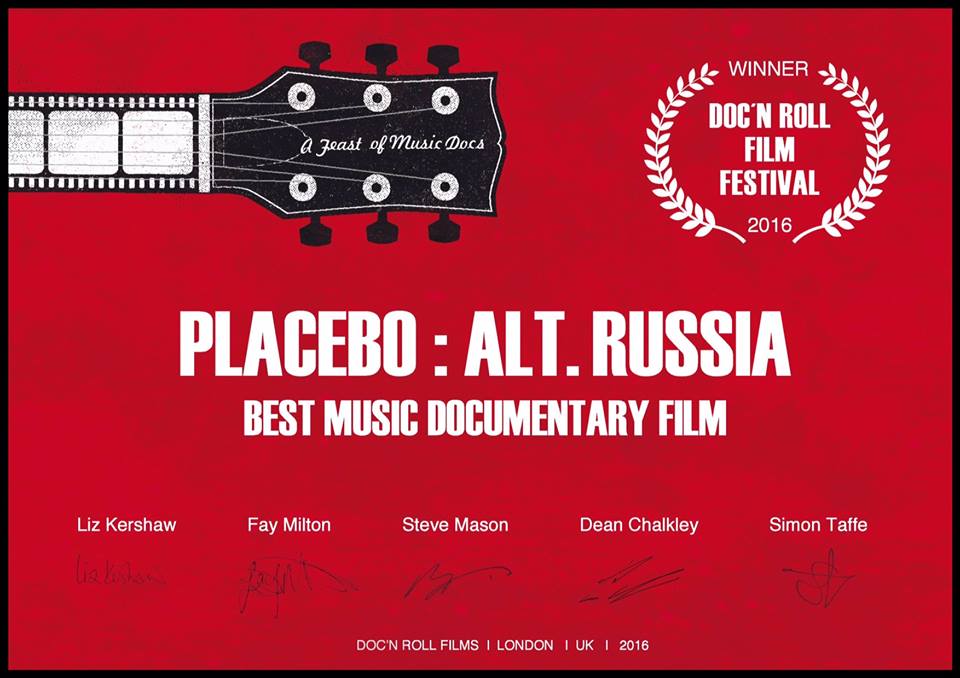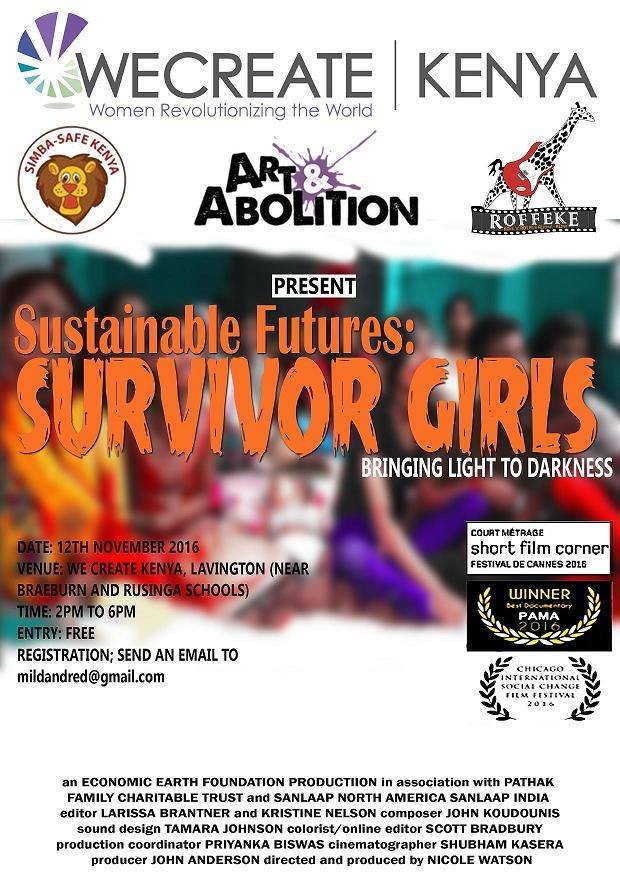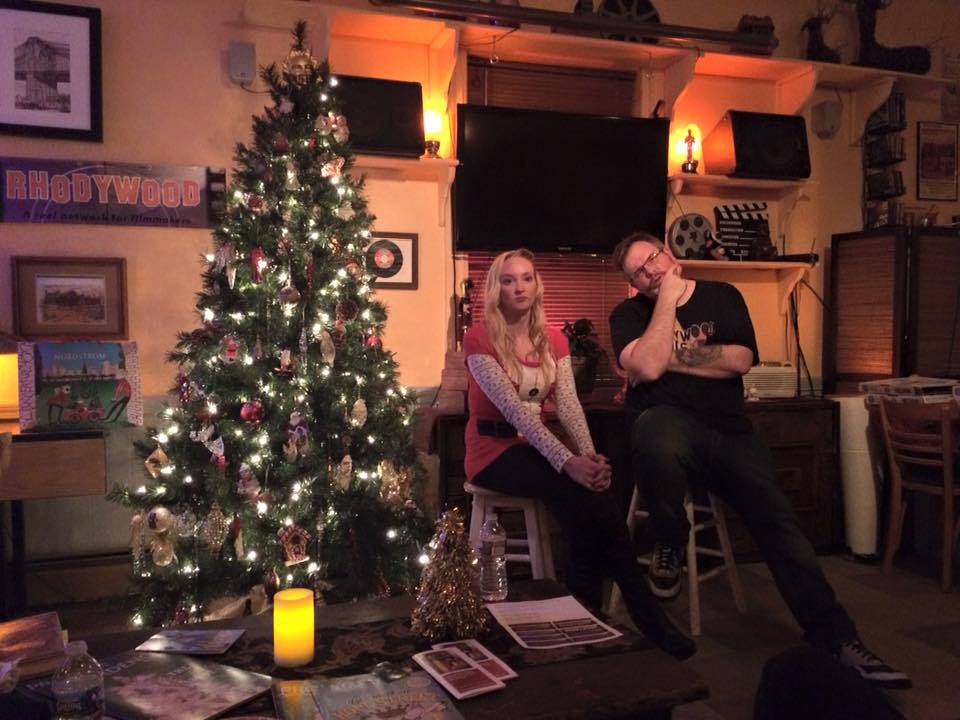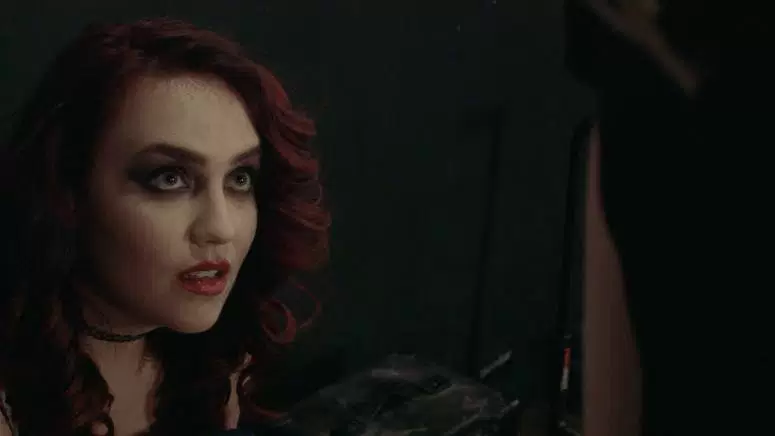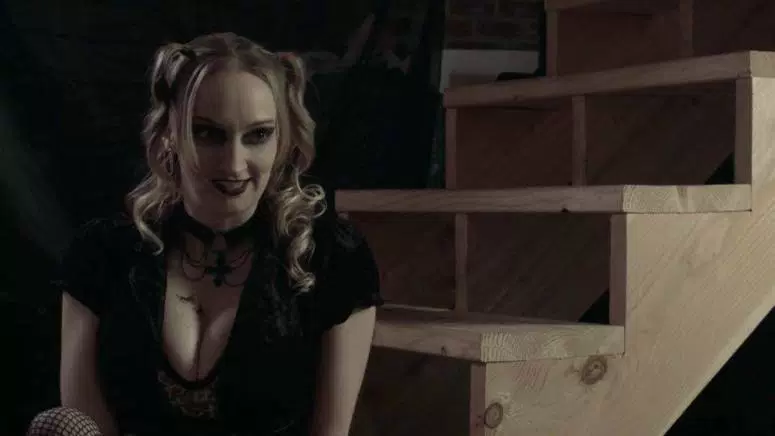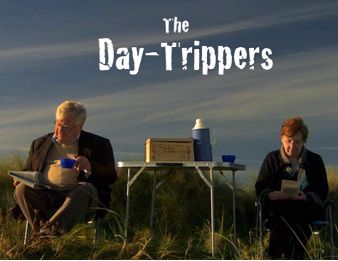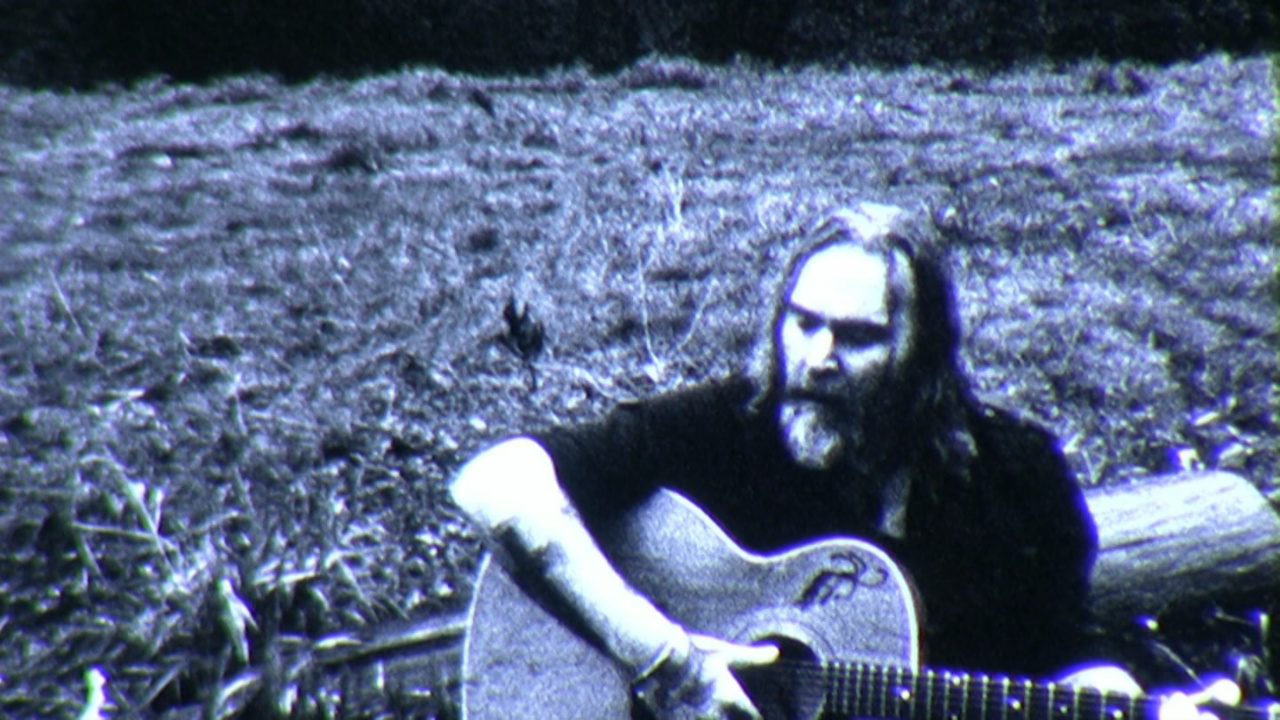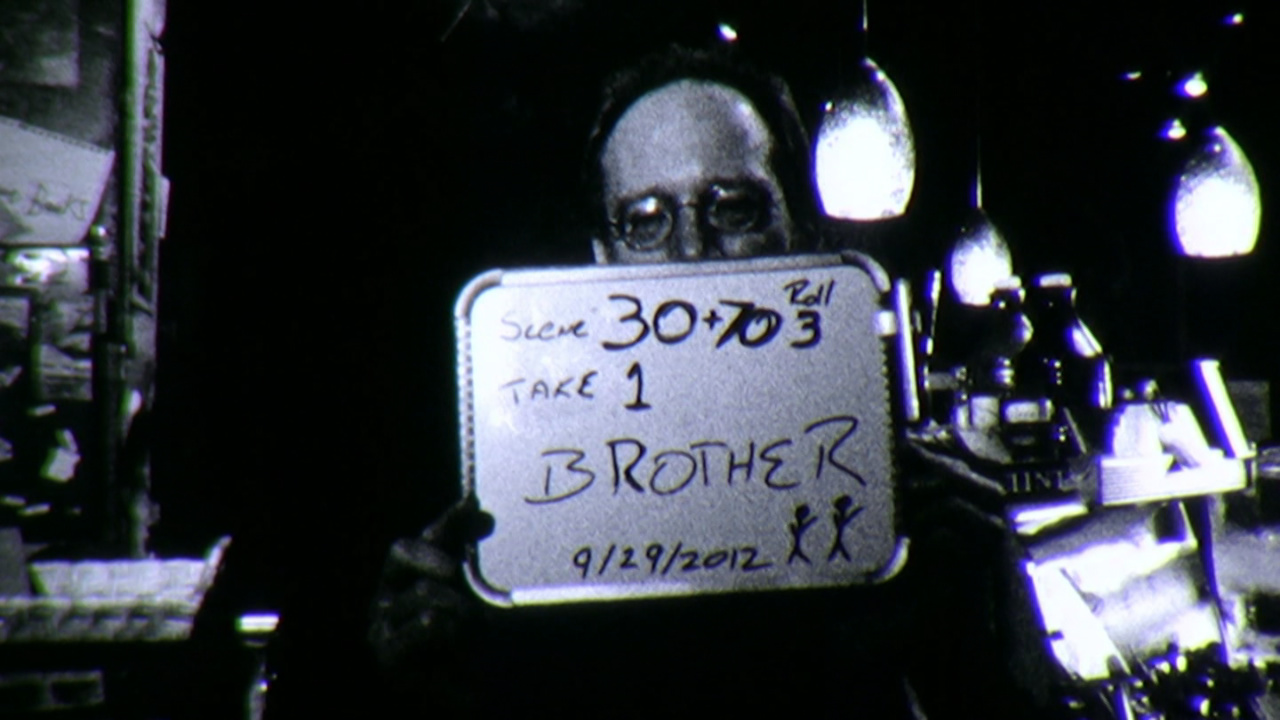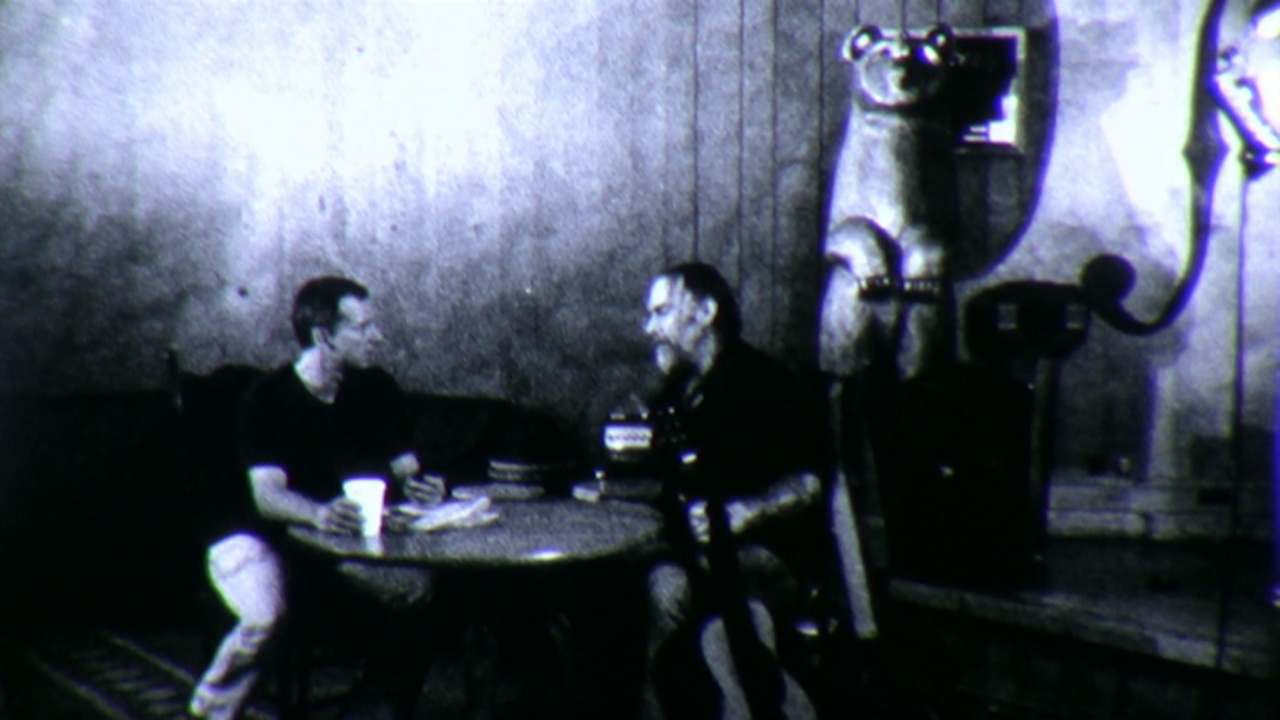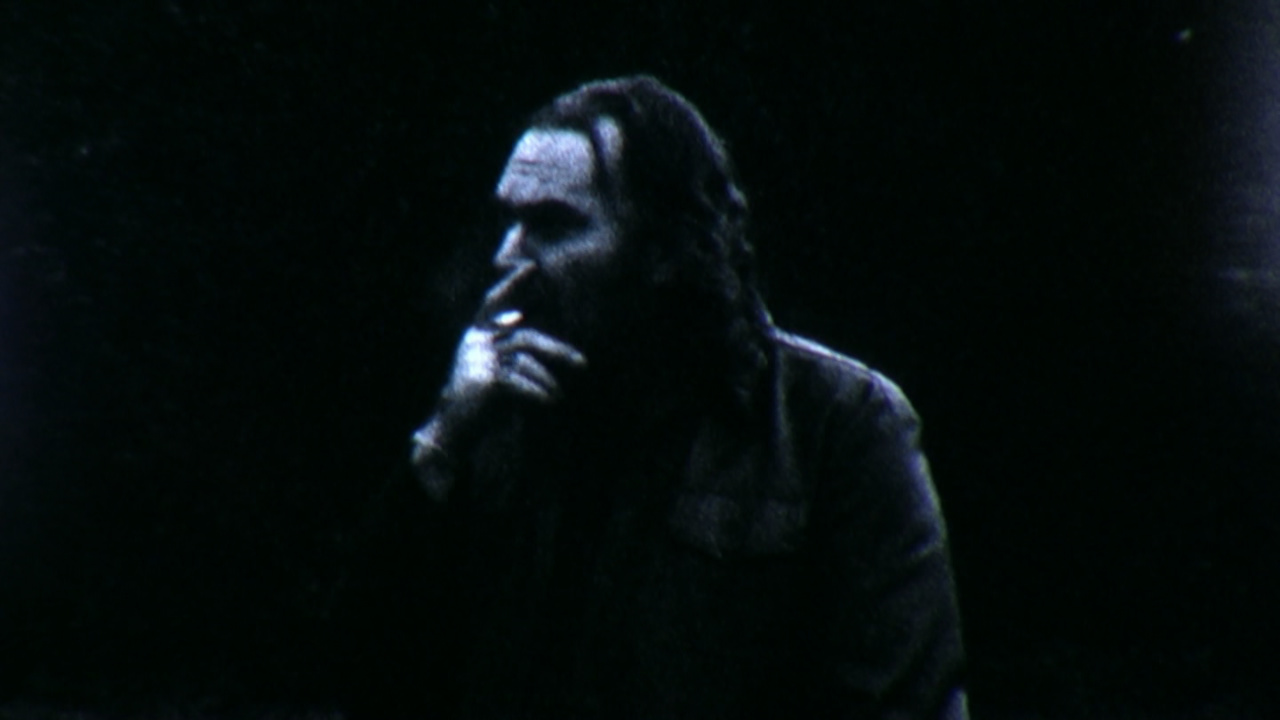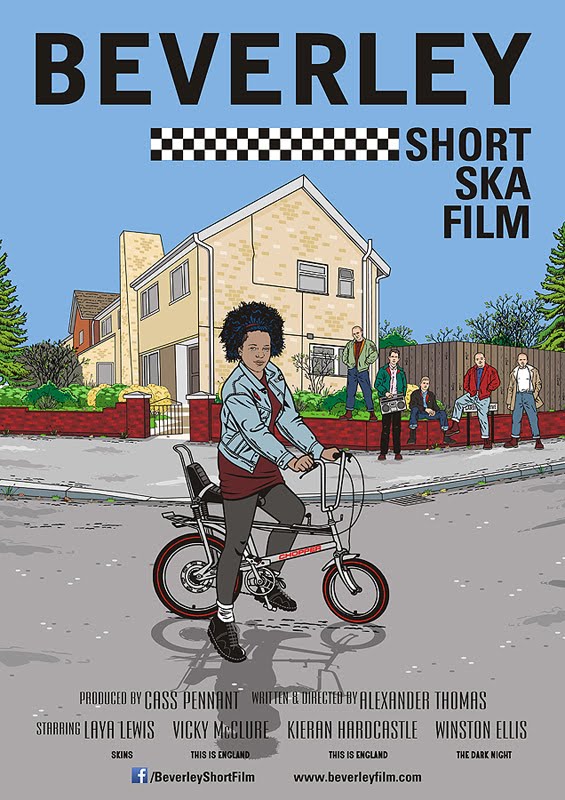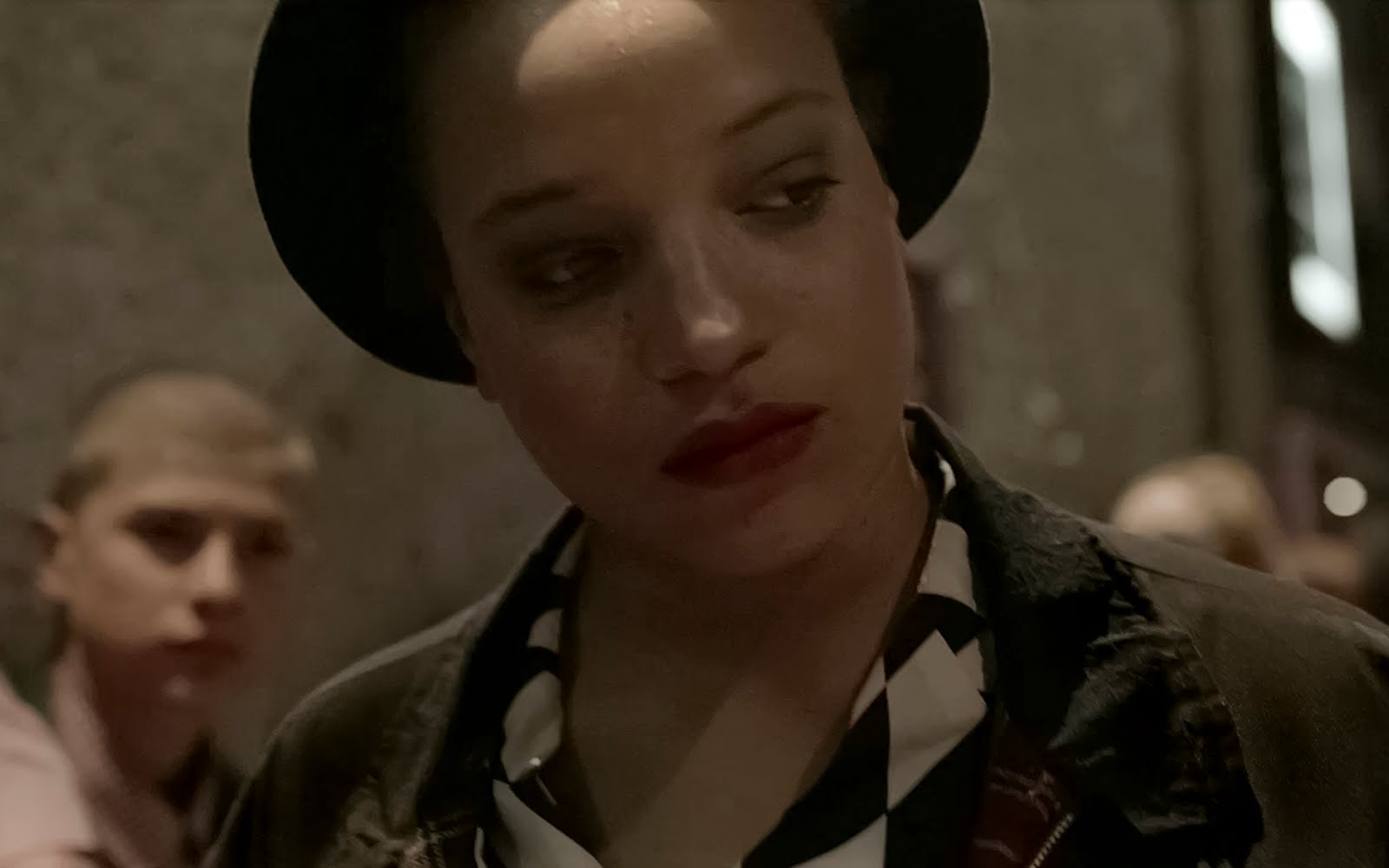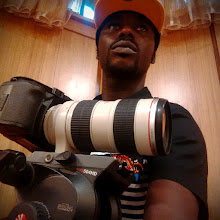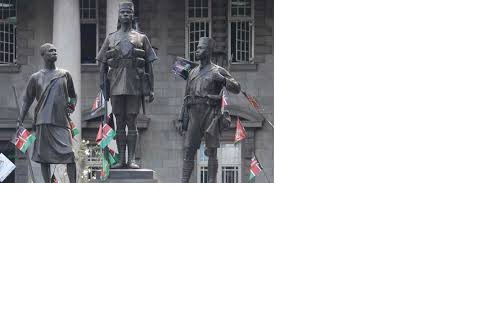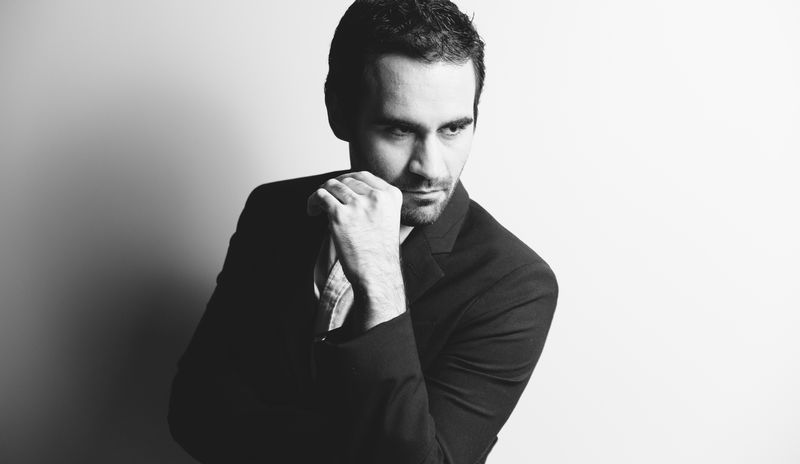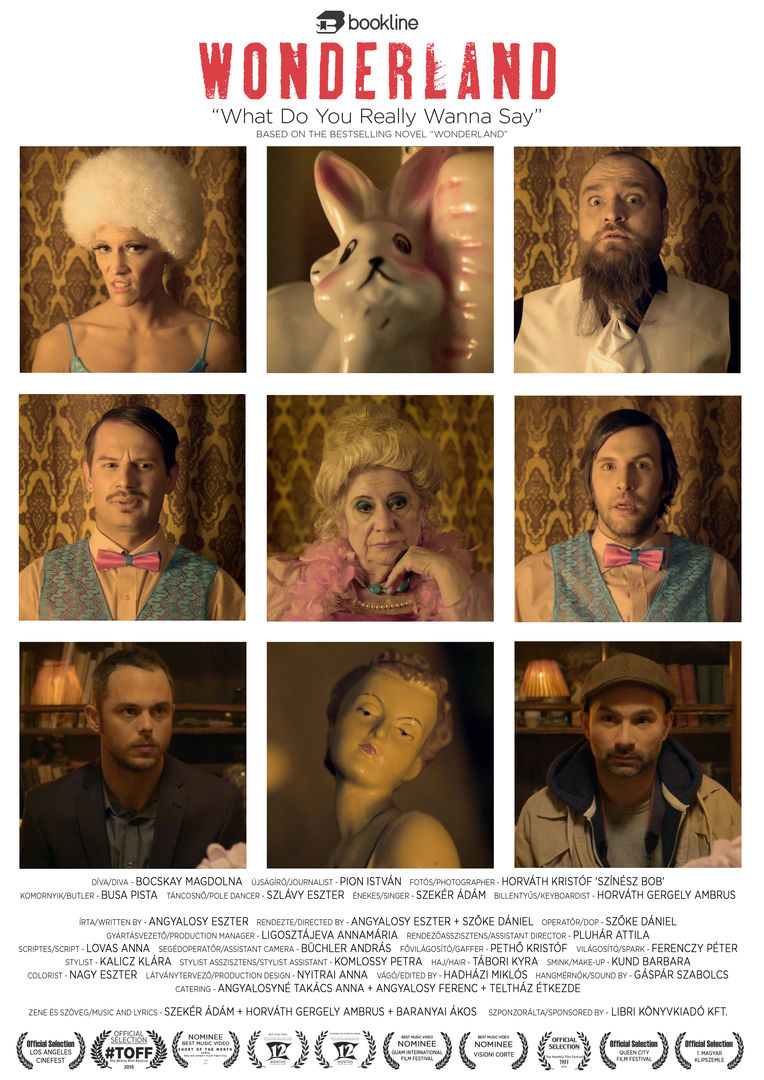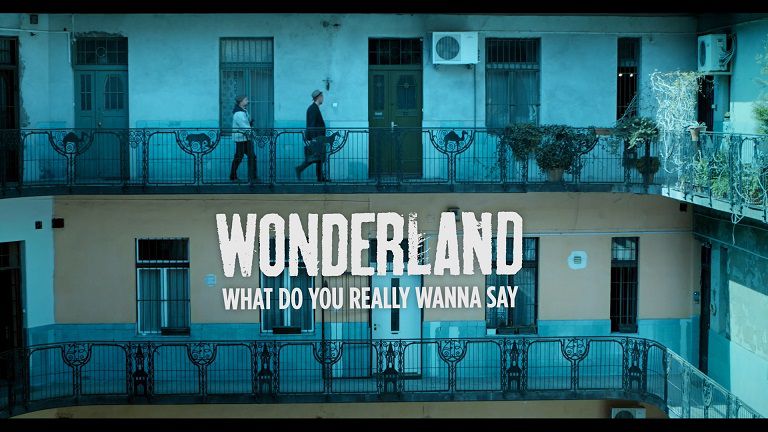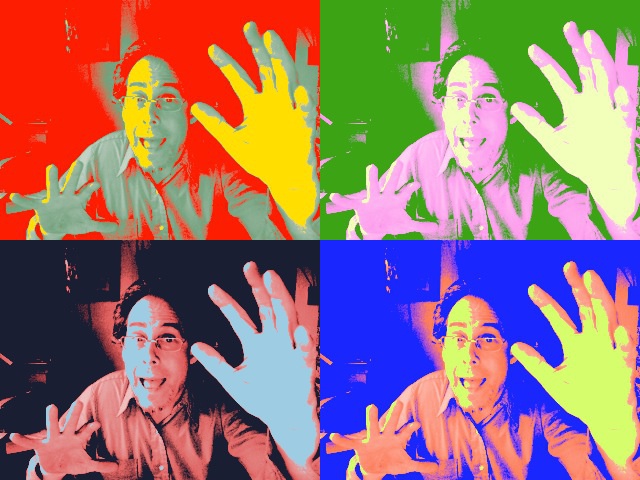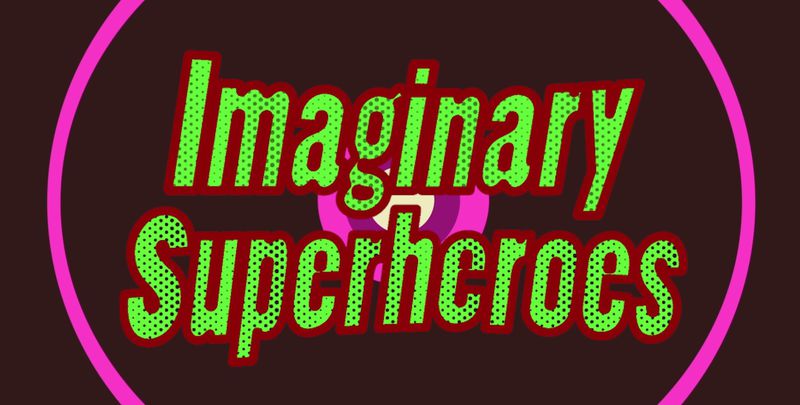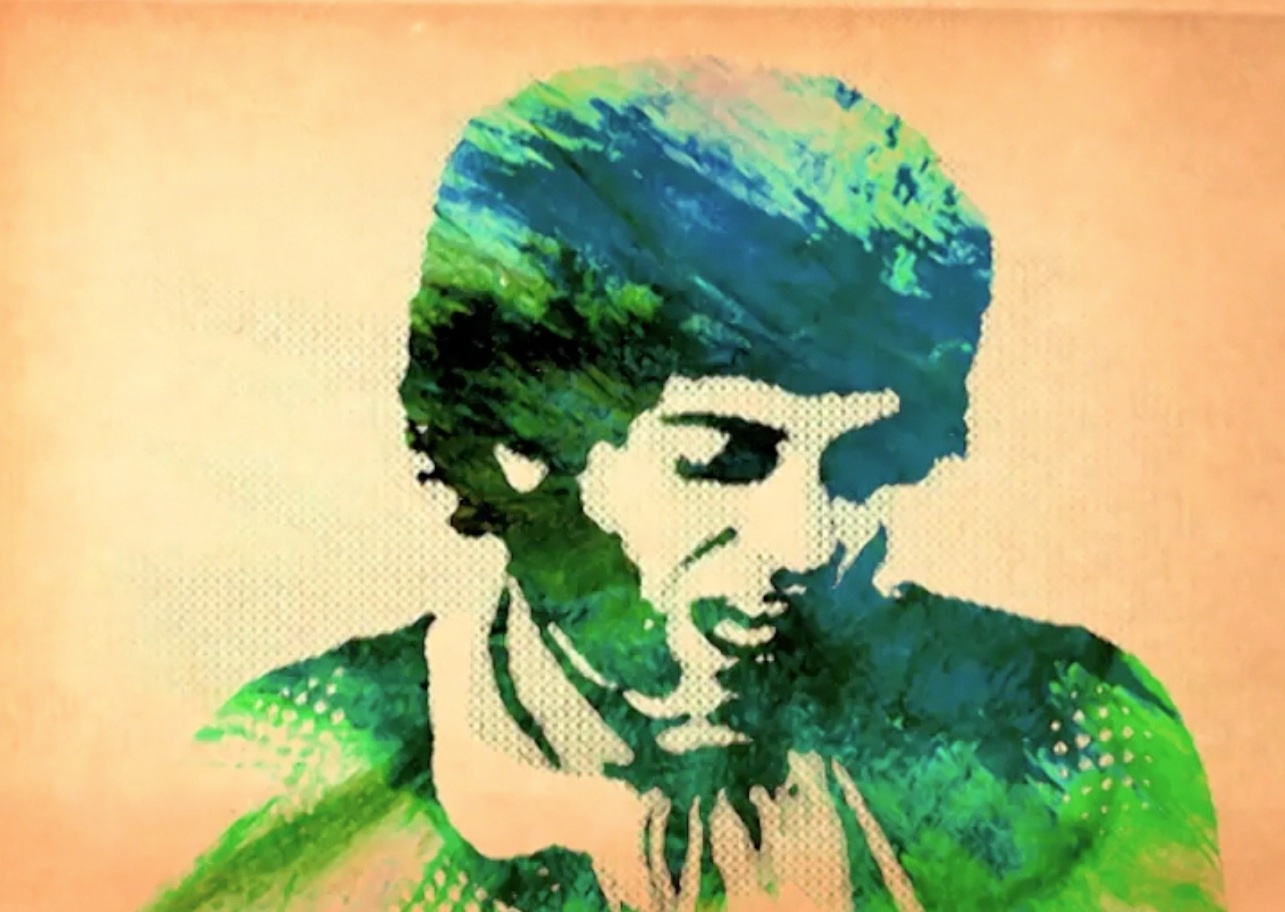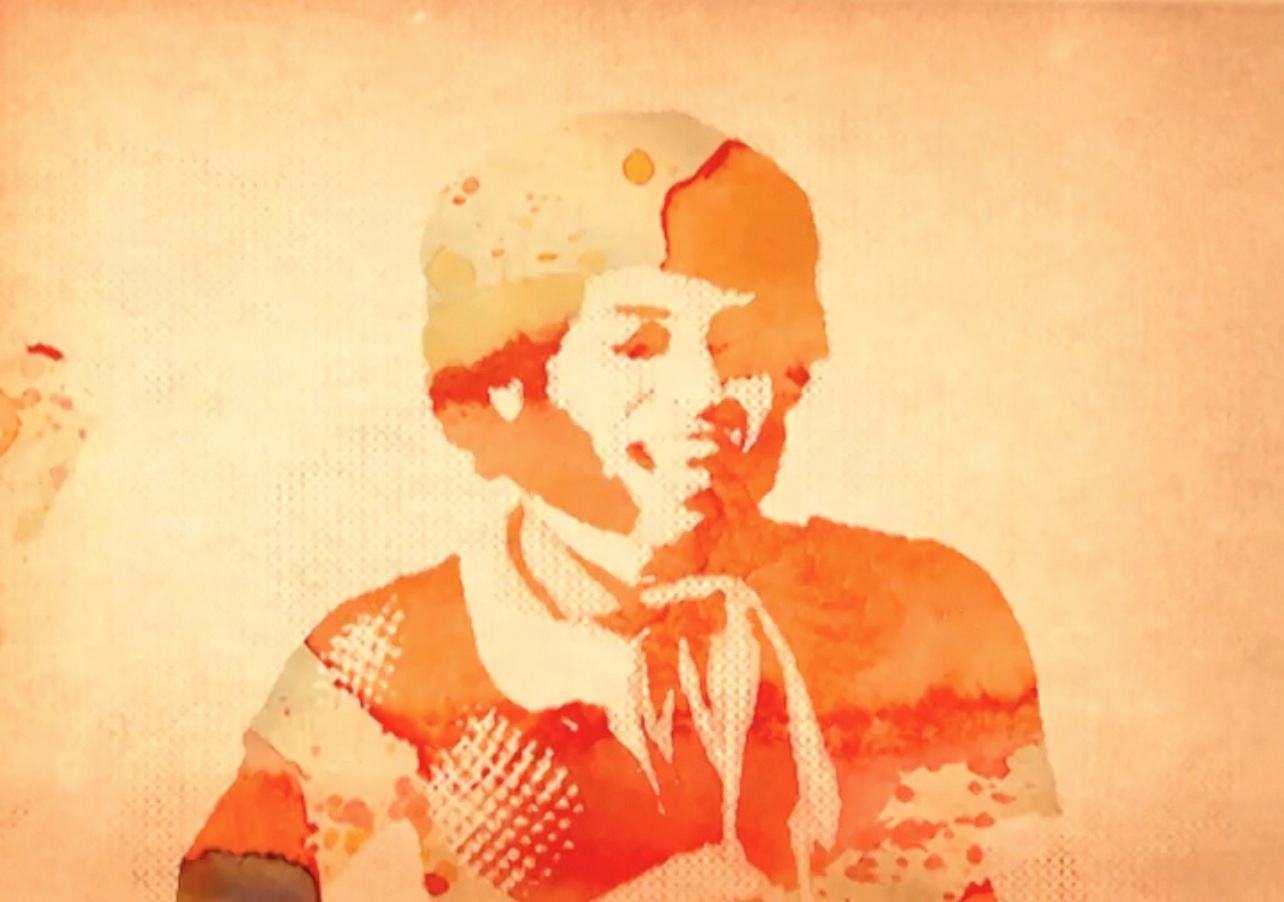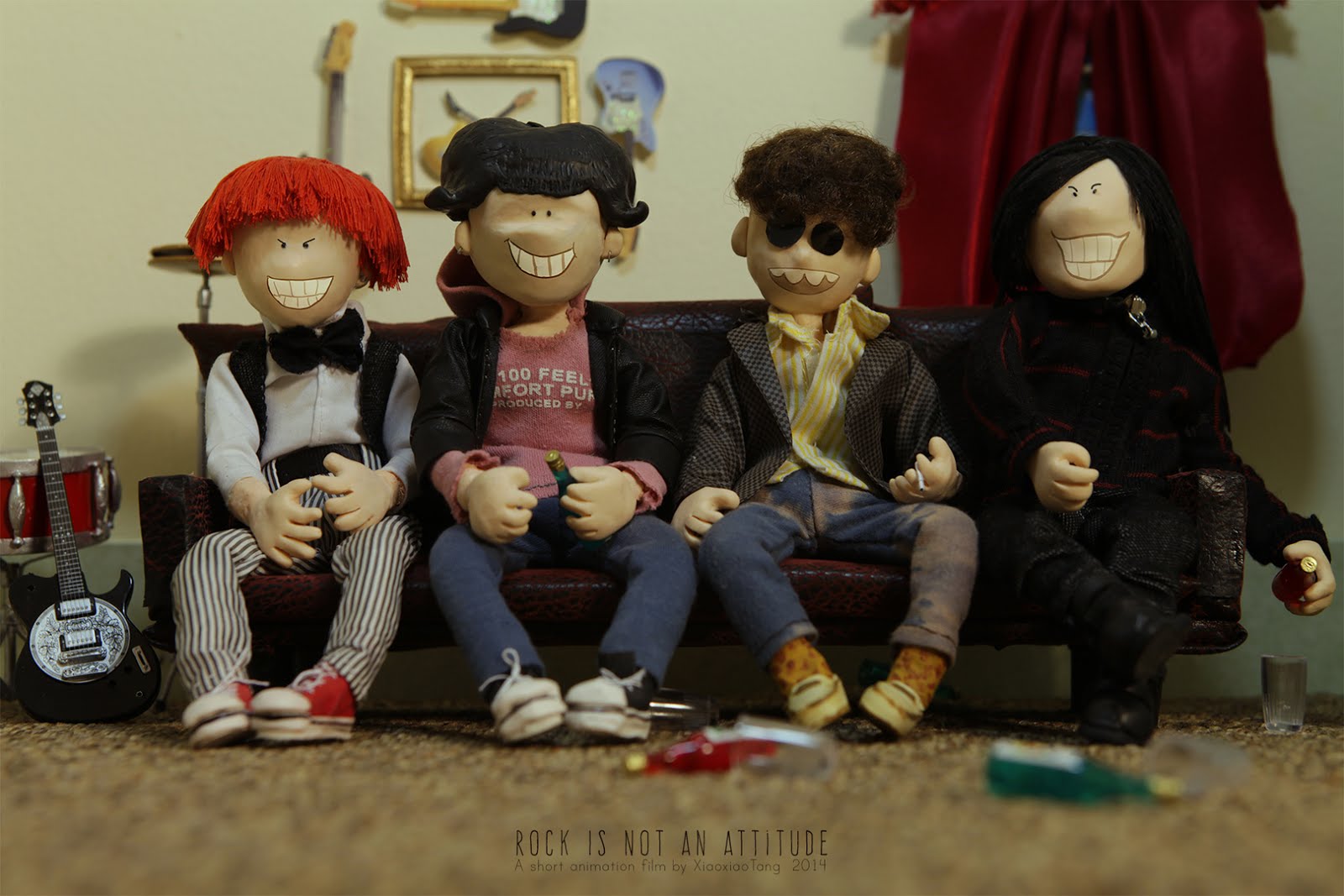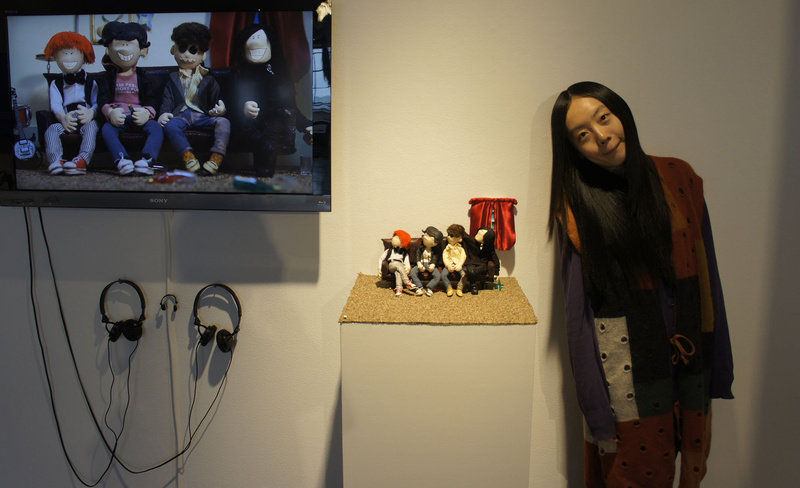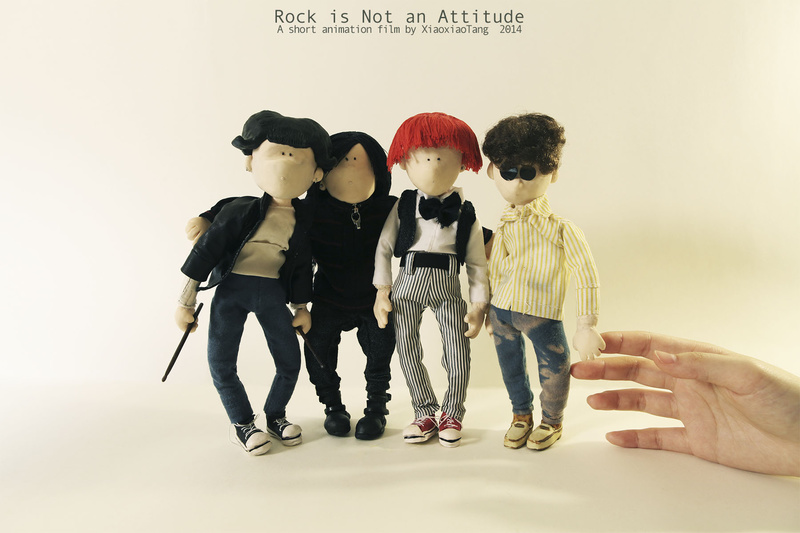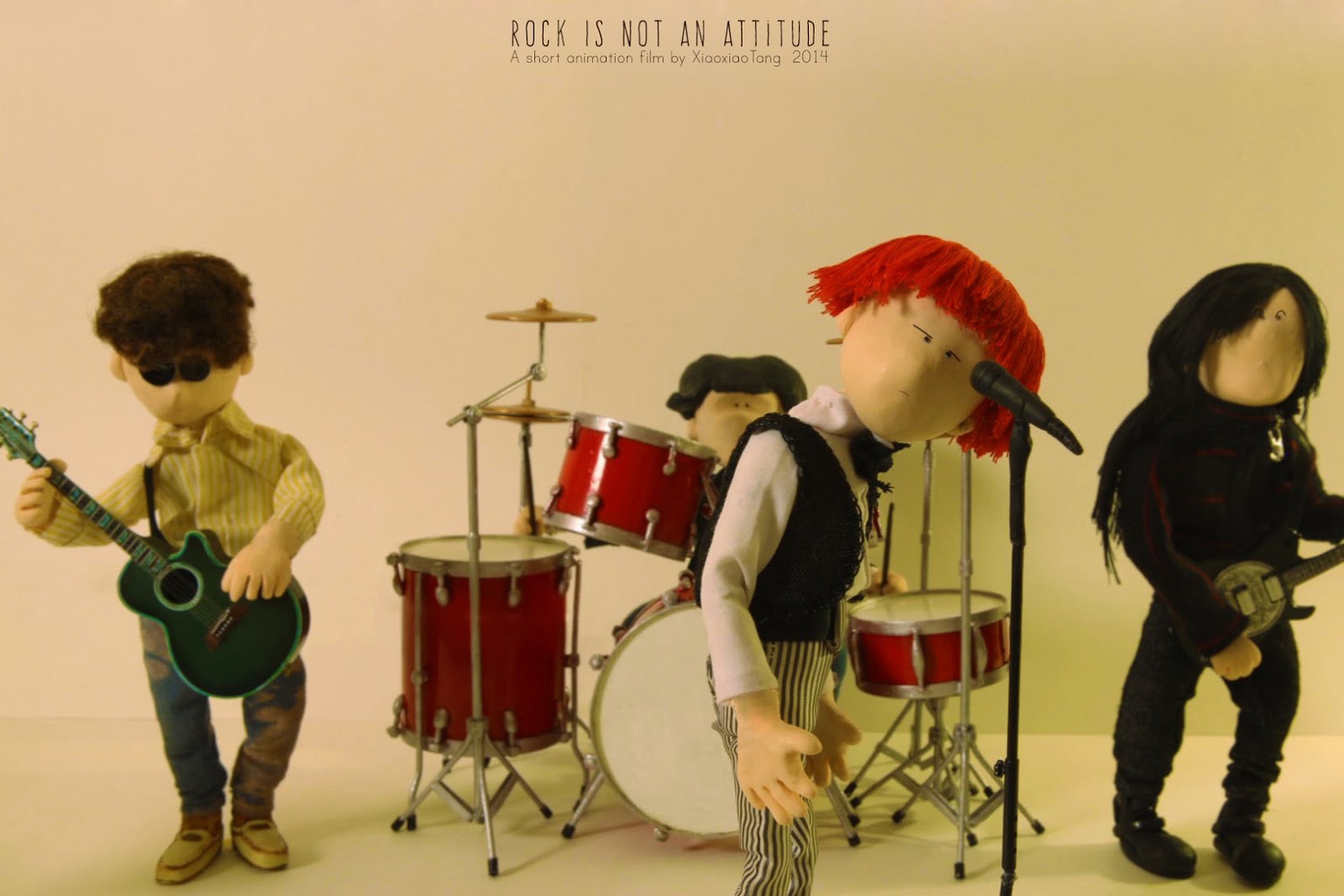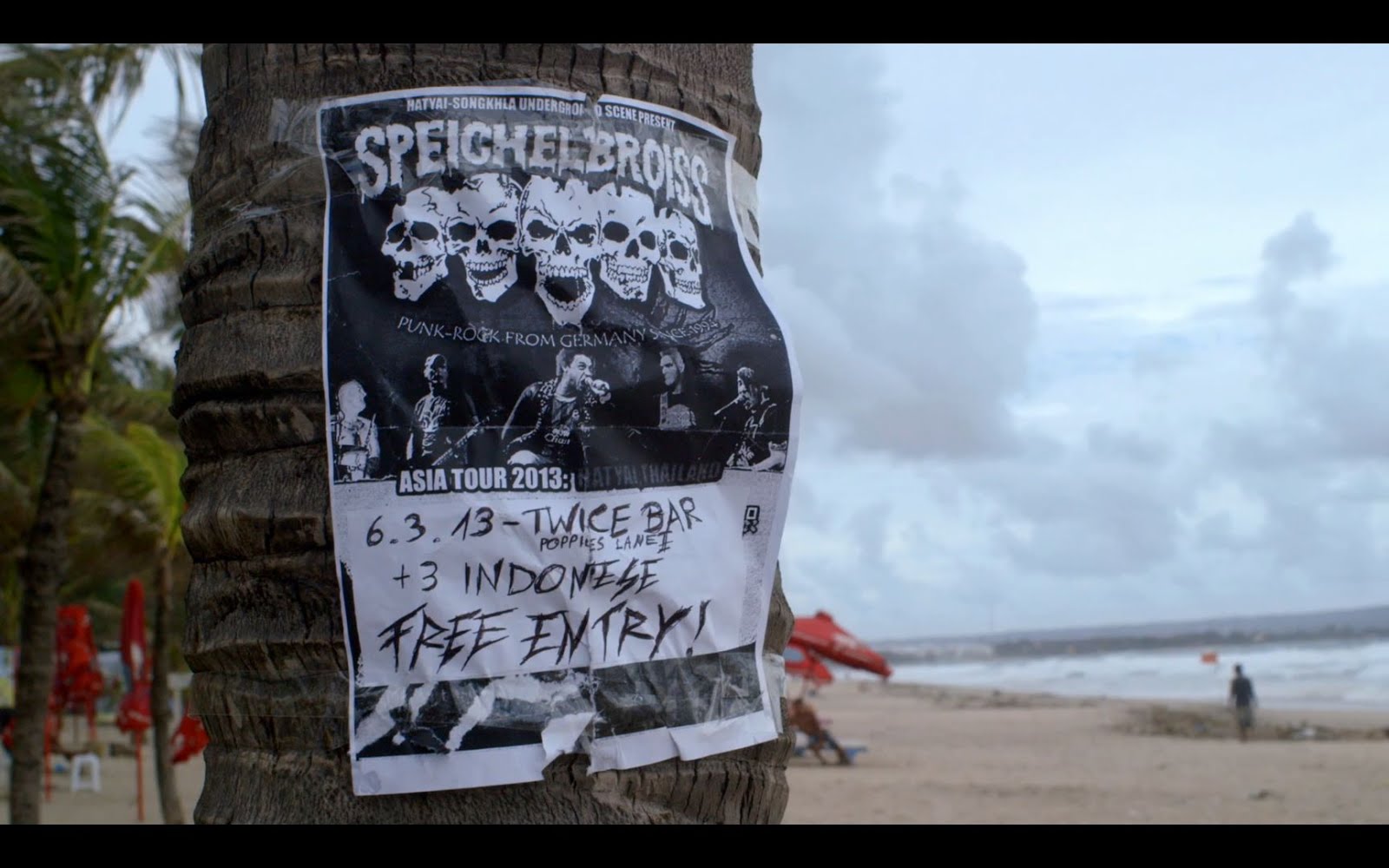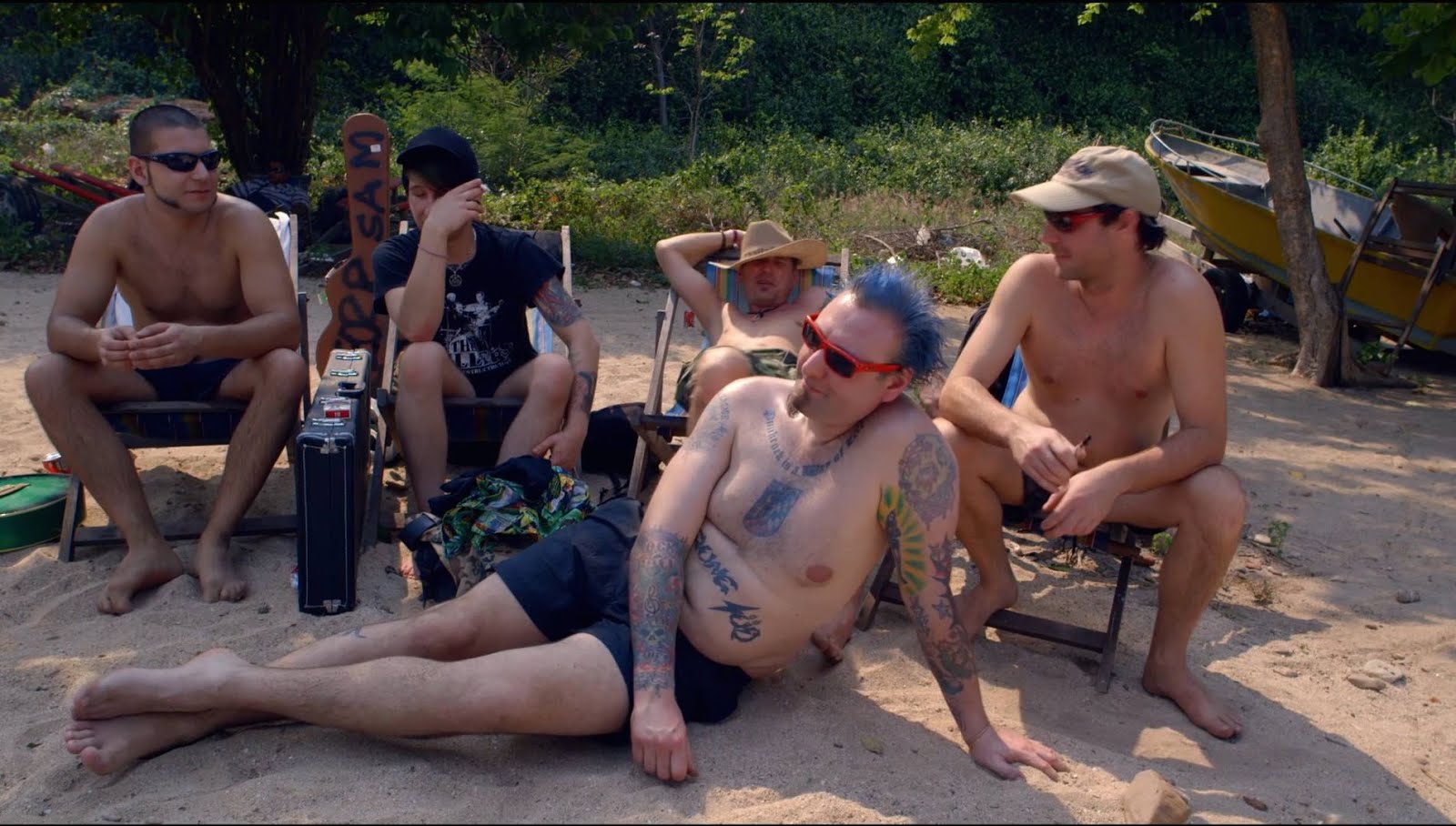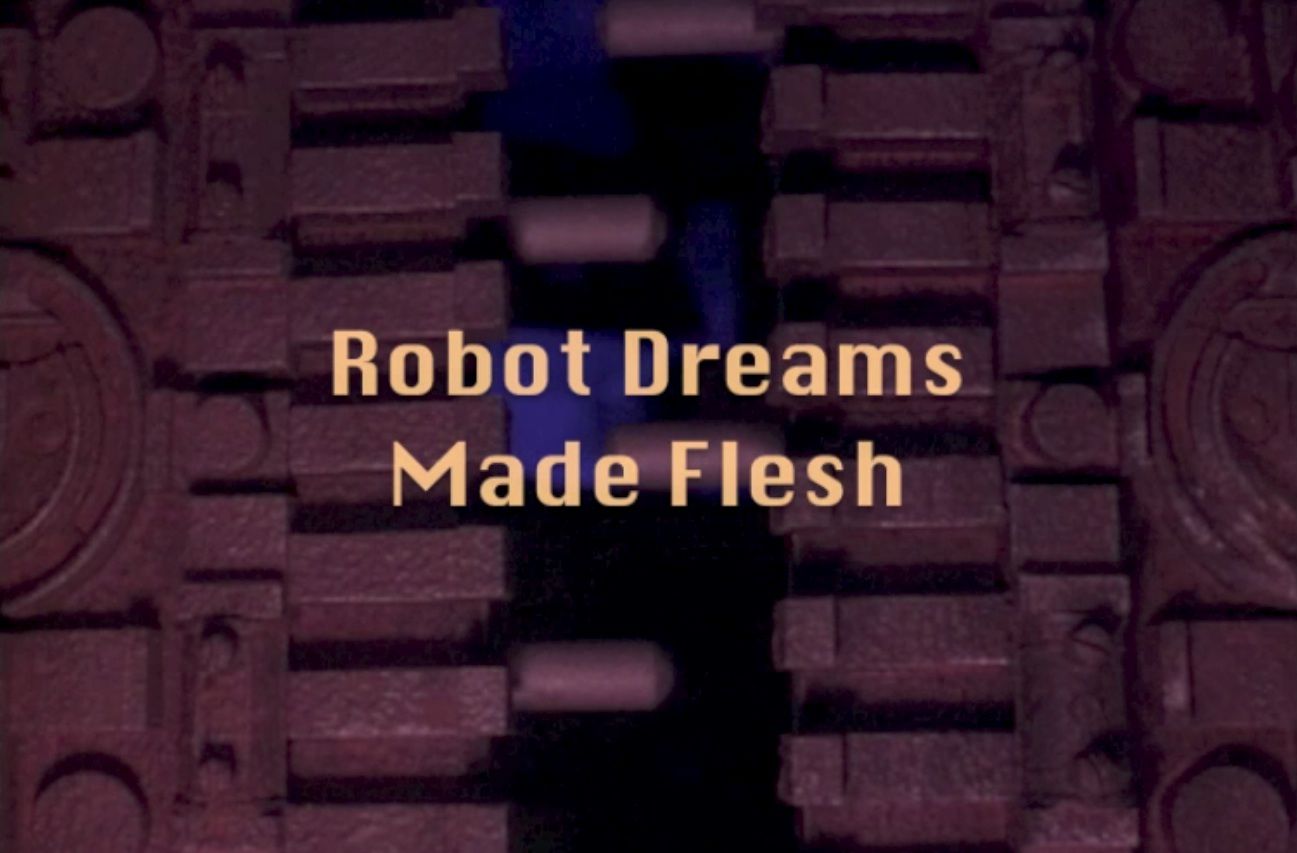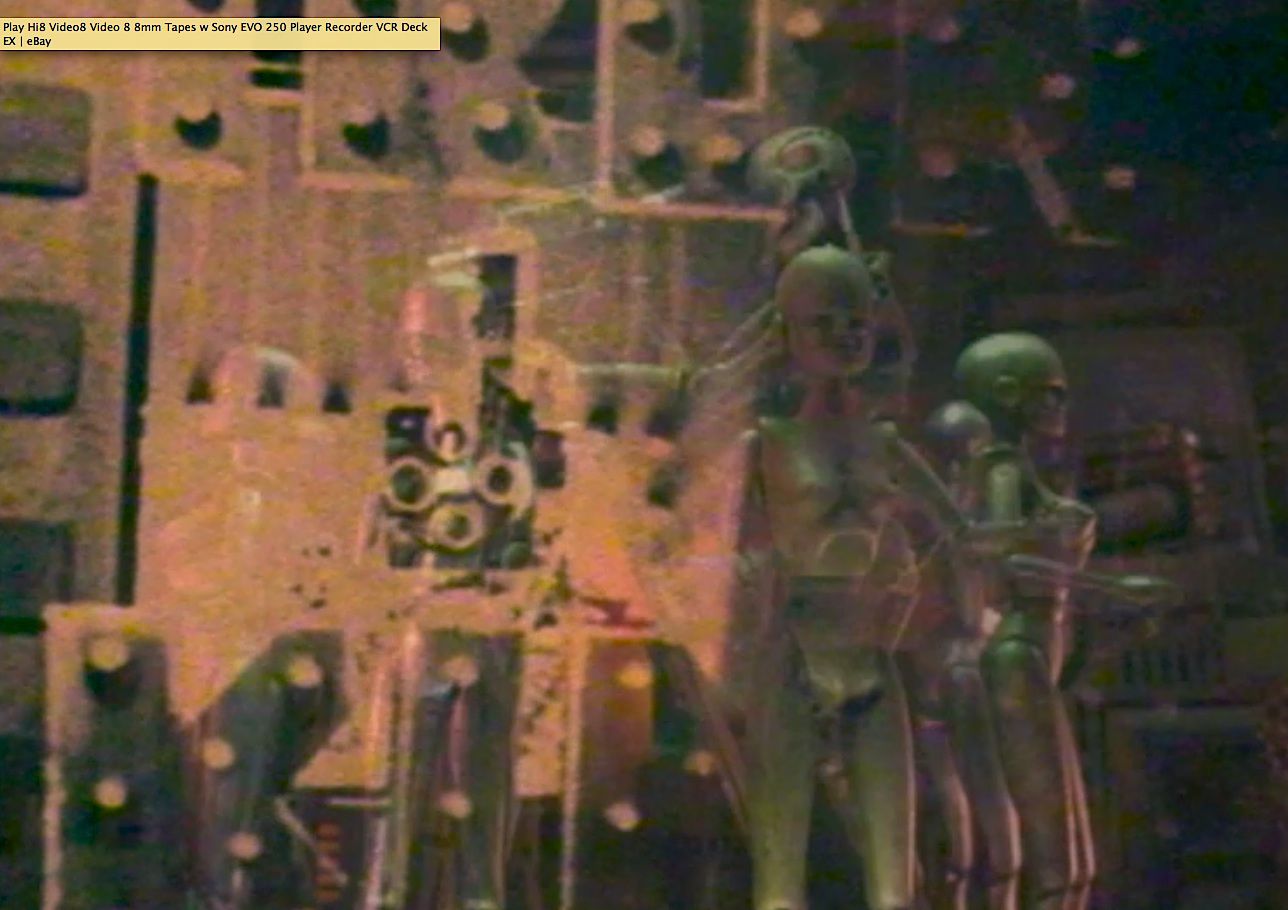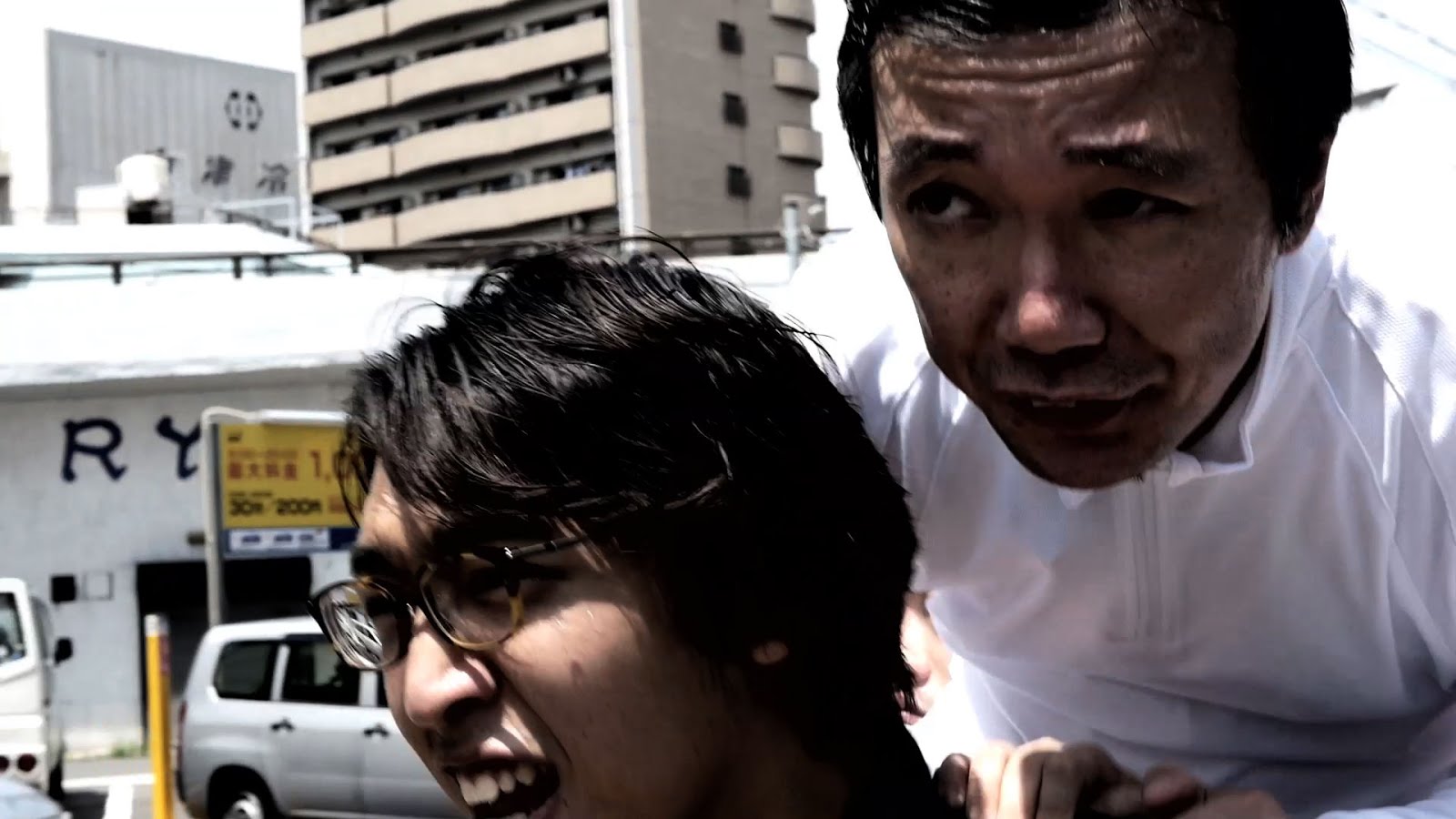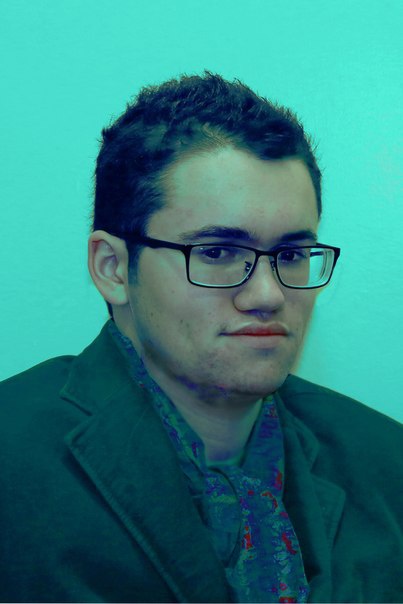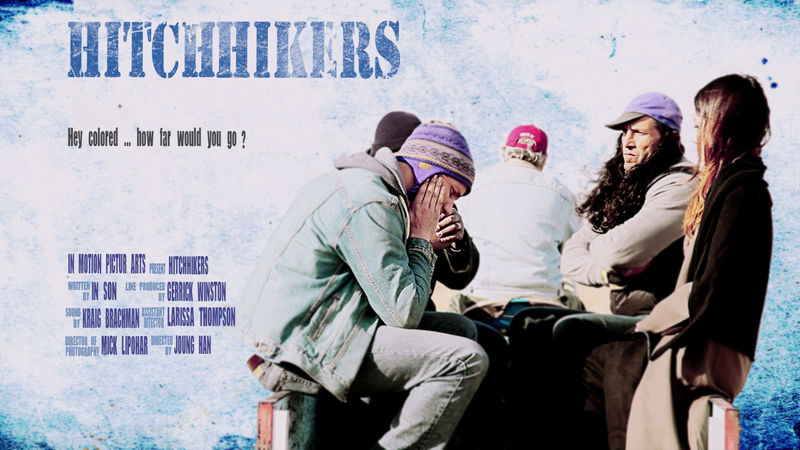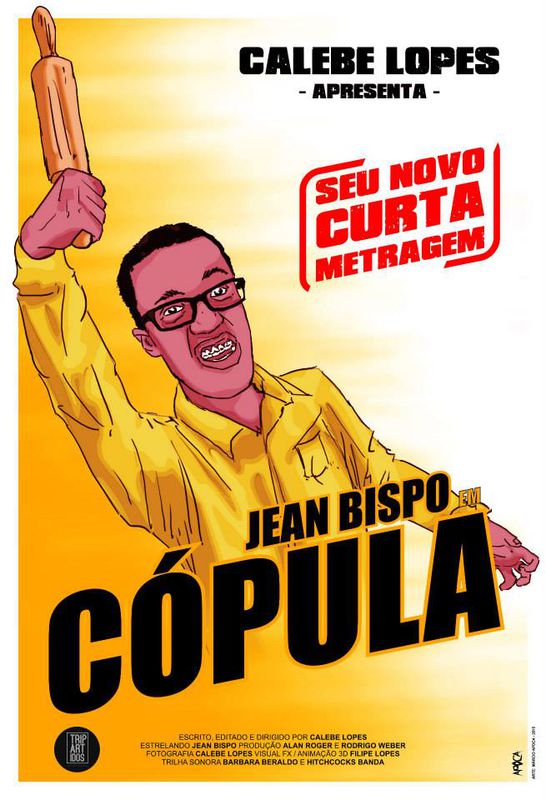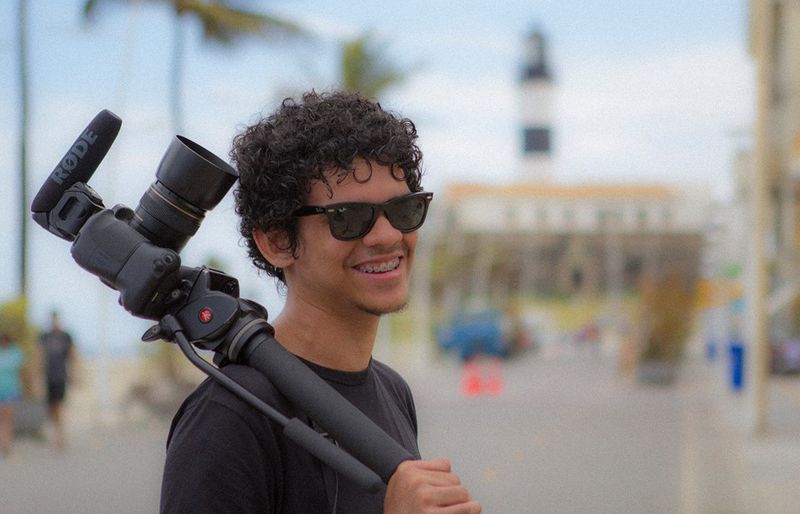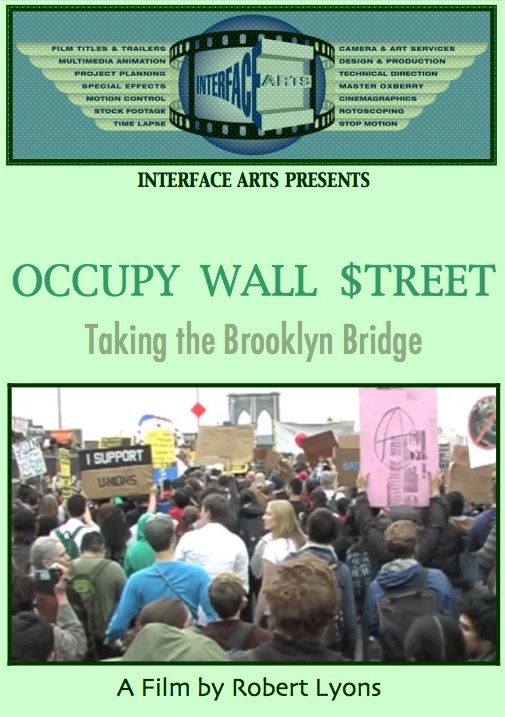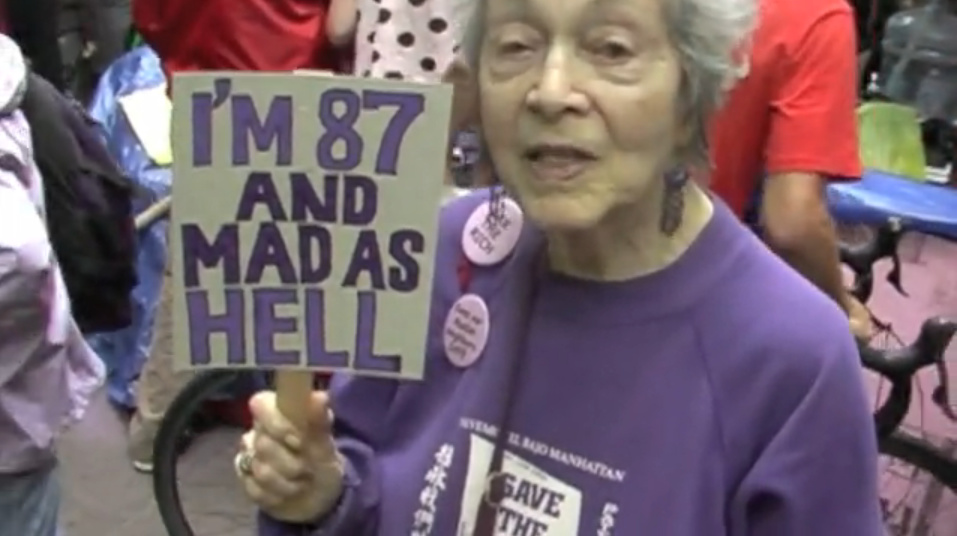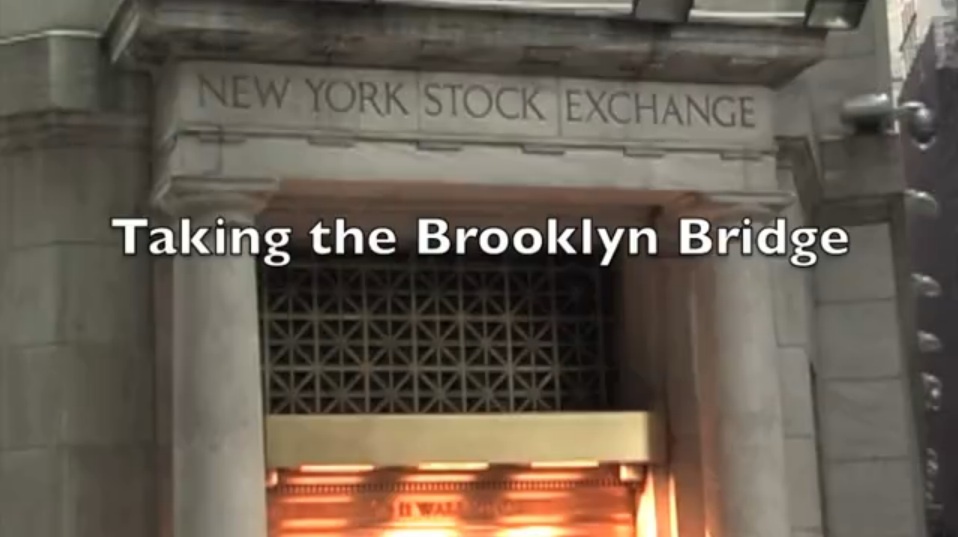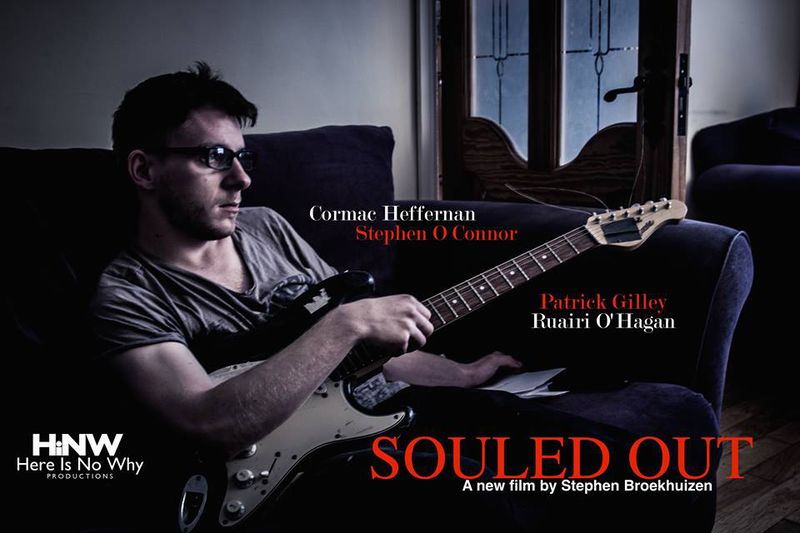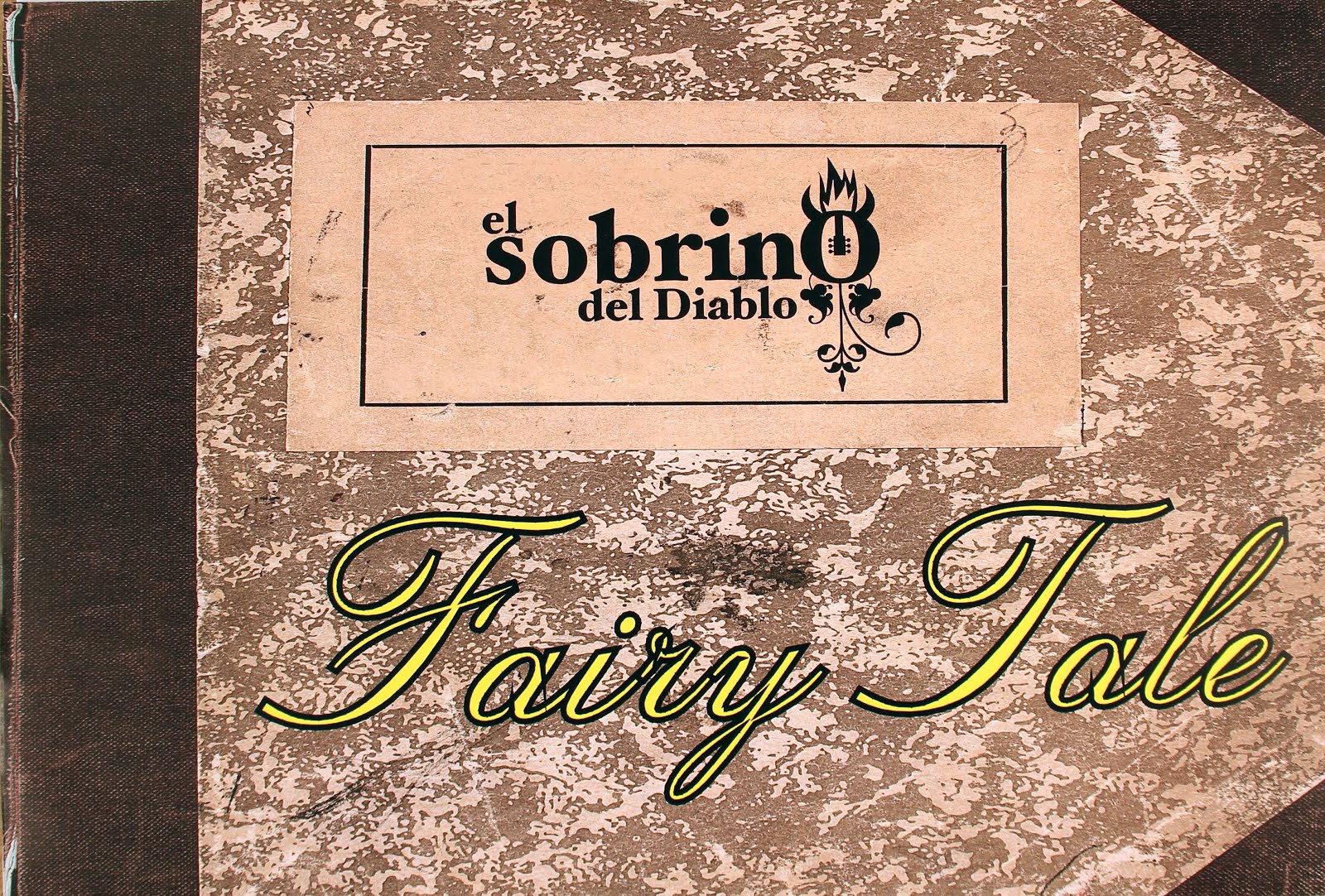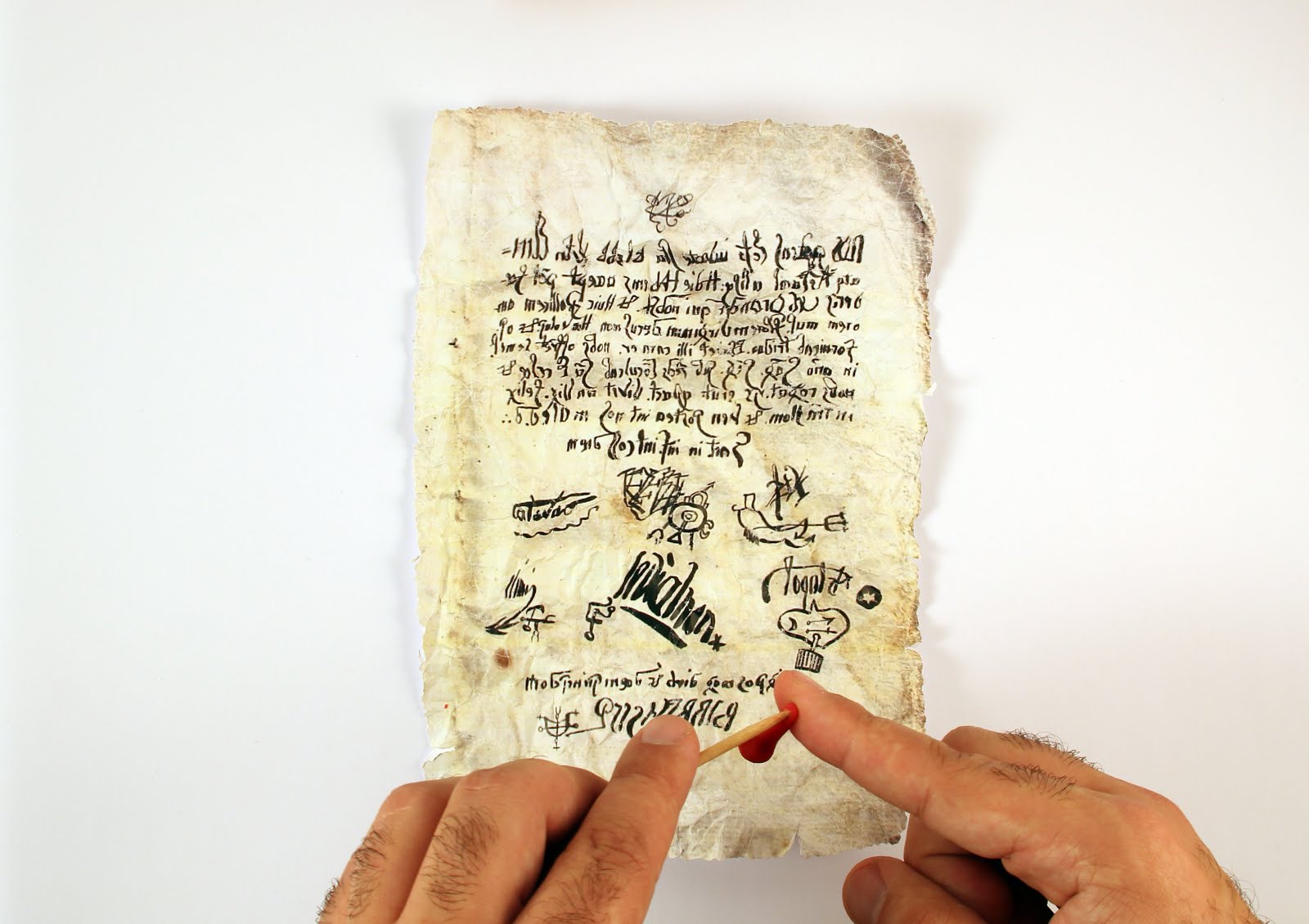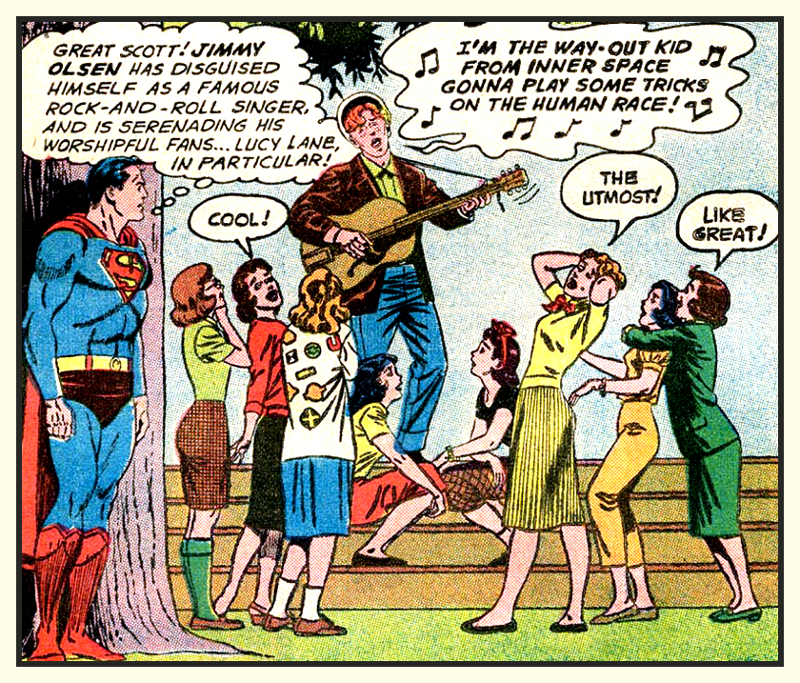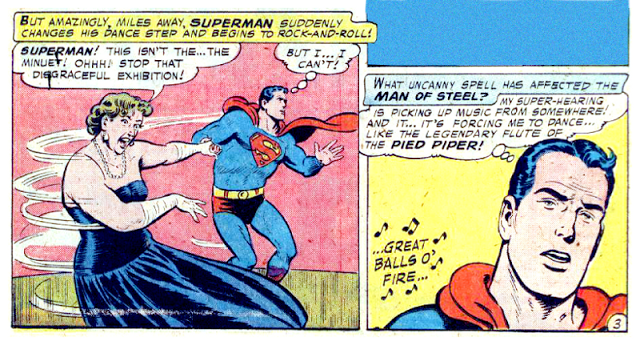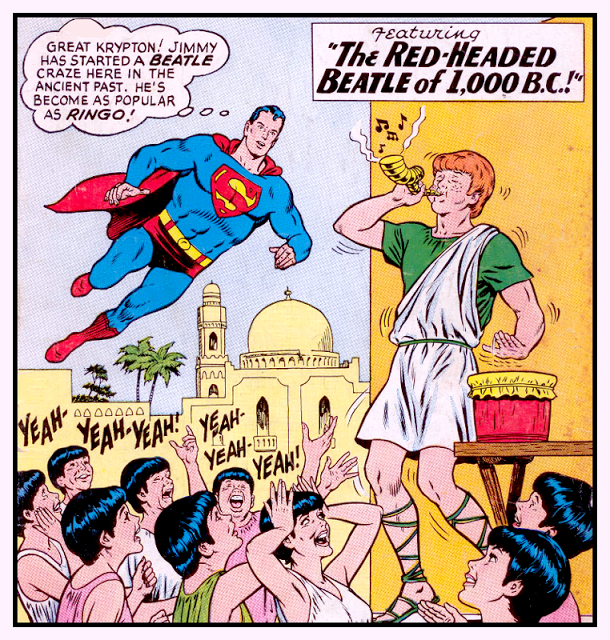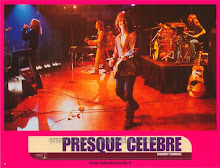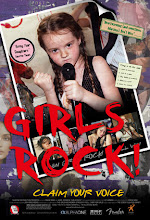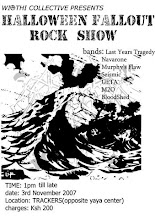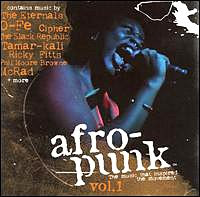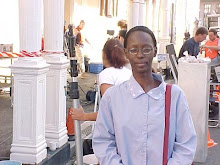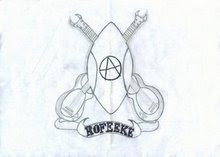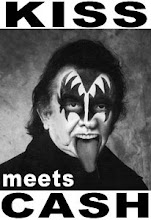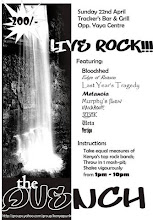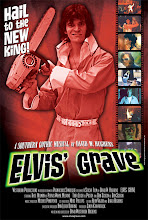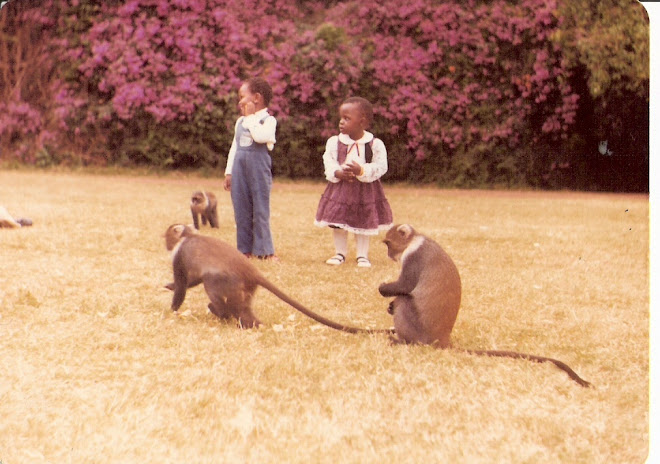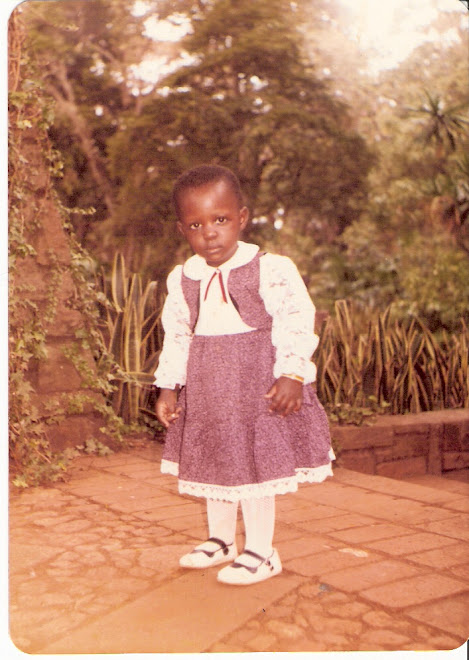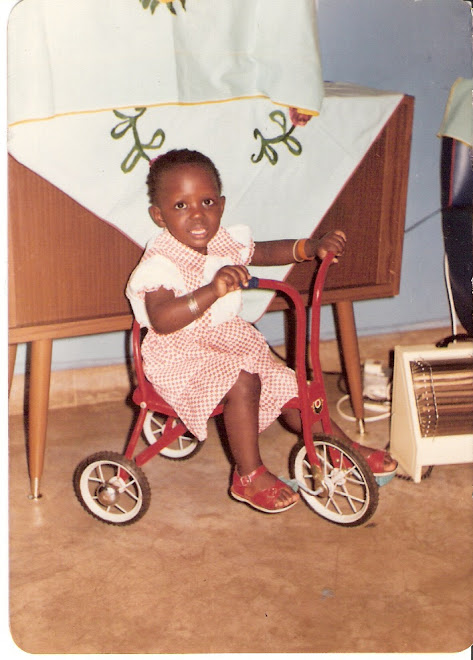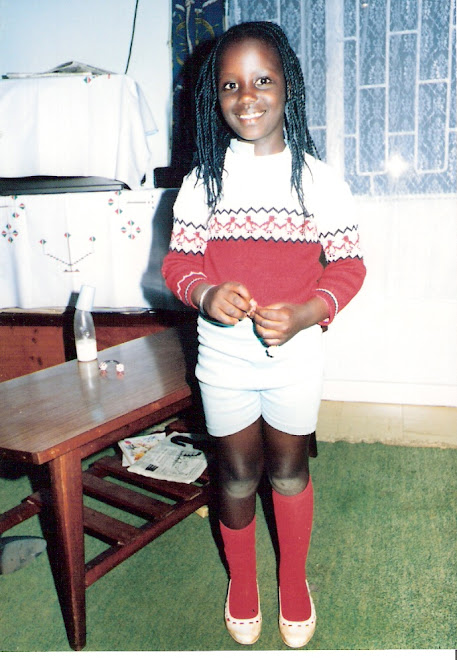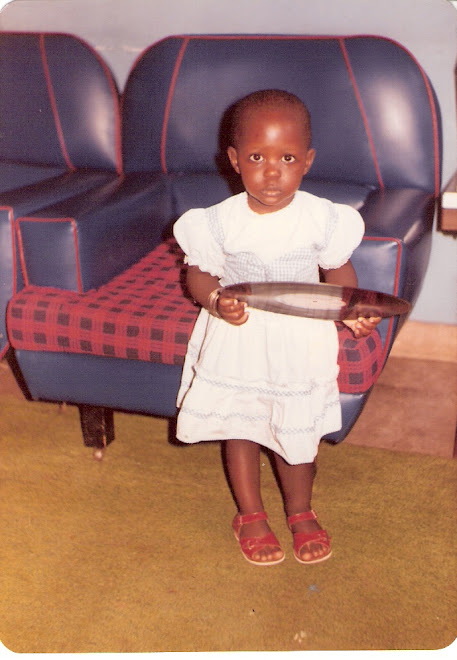I was quite captivated by the poetic narration in Spinoza Hotel. Below is my transcription of the first 1 minute and 30 seconds of Spinoza Hotel.
I channel it all
It’s an unbroken thread you see
It’s that line, that line that comes down
It has come down and I am it, you follow?
Everything that is here that exists here that has ever existed here
And there
Is still here
And there.
There is this thread
Call it madness, call it genius
That travels throughout history
Throughout the universe
And universes, multiverses, multiple verses, you get me?
I like to think of it as this little puddle, like mercury
And it flows around and settles, coalesces, like a bubble of mercury.
If it lands on you or even a bit of it lands on you
Lets say it’s splashing around coz the universe has got bumped or something
And a bit of it gets on you, or a lot, then you got it, you are part of it
And it will flow through you
And you will think and do cool things.
Like weird things even, magical.
Spinoza, for example, he got some.
Spinoza Hotel is #ROFFEKEOFFICIALSELECTION2018
Saturday, December 29, 2018
Monday, December 10, 2018
ROFFEKE at MV Fest
On 30th November, ROFFEKE was privileged to be a part of MV Fest, organized by Olamart Creatives. The venue was the beautiful and serene Oak Place Hotel and Conference Centre. The workshop, titled "ABCD of Screenwriting", was attended by actors, screenwriters, film students, models, a music video producer, an artist and a teacher. I used various short films and music videos that were submitted to ROFFEKE to illustrate the basics of screenwriting.
ANTAGONIST
"The antagonist (not the protagonist) must have the greatest willpower, which makes him or her the most powerful character in your story."
- Michael Tabb.
Screening: THIS IS JOE
The protagonist can be his or her own worst enemy.
SCREENING: RITA
BACKSTORY
One of the many things that Backstory helps a writer to do is identify conflict. "Conflict is the fundamental element of fiction, fundamental because...only trouble is interesting. It takes trouble to turn the great themes of life into a story..." - Janet Burroway.
Screening: ROCK IS NOT AN ATTITUDE
CONFLICT
Three types of conflict:
Man versus self (intrapersonal)
Man versus man (interpersonal)
Screening: ON THE FLOOR
Screening: TAP
Man versus environment
Screening: WALL OF DEATH
Synopsis: "A meteorite flies to the earth and threatens to destroy an open air rock'n'roll party. Through the power of a "Wall Of Death" the festival visitors can save the party!"
DIALOGUE
"A good film script should be able to do completely without dialogue." - David Mamet
One participant wanted to know what the screenwriter's role was if no dialogue was used in a movie. I explained that the screenwriter is the one who writes a lot of what will appear on the screen.
Screening: THE SOUND OF ROAD
Screening: MEASURE OF A MAN
(Check out the interview with Measure of a Man director and actor here)
I ended by asking the participants: What are the ABCDs in RED OMEN?
Screening: RED OMEN
Synopsis: "Award winning Canadian singer songwriter Ed Roman along with animator extraordinaire Nelson Diaz from There Be Dragons Creative Media in NYC have created an exquisite animation to the title track of Ed Roman’s latest album Red Omen. The message is for awareness of Dyslexia."
(Read ROFFEKE Volunteer, Zafrica Hasaja's review of Red Omen, here)
We ended with a short discussion on the challenges and opportunities in the Kenyan film industry.
ANTAGONIST
"The antagonist (not the protagonist) must have the greatest willpower, which makes him or her the most powerful character in your story."
- Michael Tabb.
Screening: THIS IS JOE
The protagonist can be his or her own worst enemy.
SCREENING: RITA
BACKSTORY
One of the many things that Backstory helps a writer to do is identify conflict. "Conflict is the fundamental element of fiction, fundamental because...only trouble is interesting. It takes trouble to turn the great themes of life into a story..." - Janet Burroway.
Screening: ROCK IS NOT AN ATTITUDE
CONFLICT
Three types of conflict:
Man versus self (intrapersonal)
Man versus man (interpersonal)
Screening: ON THE FLOOR
On The Floor from Georges HH on Vimeo.
Screening: TAP
Man versus environment
Screening: WALL OF DEATH
Synopsis: "A meteorite flies to the earth and threatens to destroy an open air rock'n'roll party. Through the power of a "Wall Of Death" the festival visitors can save the party!"
DIALOGUE
"A good film script should be able to do completely without dialogue." - David Mamet
One participant wanted to know what the screenwriter's role was if no dialogue was used in a movie. I explained that the screenwriter is the one who writes a lot of what will appear on the screen.
Screening: THE SOUND OF ROAD
Screening: MEASURE OF A MAN
(Check out the interview with Measure of a Man director and actor here)
I ended by asking the participants: What are the ABCDs in RED OMEN?
Screening: RED OMEN
Synopsis: "Award winning Canadian singer songwriter Ed Roman along with animator extraordinaire Nelson Diaz from There Be Dragons Creative Media in NYC have created an exquisite animation to the title track of Ed Roman’s latest album Red Omen. The message is for awareness of Dyslexia."
(Read ROFFEKE Volunteer, Zafrica Hasaja's review of Red Omen, here)
We ended with a short discussion on the challenges and opportunities in the Kenyan film industry.
Thursday, November 29, 2018
3 Reviews by Zafrica Hasaja
ROFFEKE is honoured to have a new volunteer, Zafrica Hasaja. Zafrica studied Theatre Arts and Film technology at Kenyatta University. He has worked as a video editor at the Kenya Broadcasting Corporation and was an intern at Royal Media Services. Below are his first three reviews:
RED OMEN BY ED ROMAN
Animated music videos are slowly becoming like an in thing and when I saw the video for red omen by Ed Roman I was curious to watch it till the end. Well let’s unwrap ‘red omen’. This song first of all, is an amazing track. I liked the hook and chorus; it’s catchy but you have to listen to the whole song to get the gist. The video is awesome. I loved the concept of the toy theme. It reminded me of when I was young. The guitar was a standout factor, wow! This is one track that should be on your playlist; even kids will enjoy this tune.
A BIGGER MAN BY PAPERFACE
'A bigger man' by Paperface is a creative rock music video. The song not only has an awesome message to it but also there is something special in the chillness of the whole vibe. To all rock fans, this tune captures the deepest part of the soul, sending your mind somewhere to oblivion.Yet again an awesome execution of the video. Honestly I can recommended this song to any one without second guessing. The video is an animated tale that will keep you glued to it till the end. For further understanding (so that it doesn't seem like I am mumbling a lot of nothing) kindly see the video on YouTube and if you like it just like I did, click on the like button and subscribe for more!
MARCH FROM THE UNDERGROUND BY LAST YEAR'S TRAGEDY
‘Last year’s tragedy’ is a Kenyan metal rock group. In review ‘march from underground’ is a fine one with some freshness to it. It has a lot of ‘emo’ to give out with a high tone. The rating for this one is fair. It would be a good composition for a concert. The video done in black and white fuses into the song's theme which was done in memory of one who was close to the group. It is intense and brings out the adventure in the track.
RED OMEN BY ED ROMAN
Animated music videos are slowly becoming like an in thing and when I saw the video for red omen by Ed Roman I was curious to watch it till the end. Well let’s unwrap ‘red omen’. This song first of all, is an amazing track. I liked the hook and chorus; it’s catchy but you have to listen to the whole song to get the gist. The video is awesome. I loved the concept of the toy theme. It reminded me of when I was young. The guitar was a standout factor, wow! This is one track that should be on your playlist; even kids will enjoy this tune.
A BIGGER MAN BY PAPERFACE
'A bigger man' by Paperface is a creative rock music video. The song not only has an awesome message to it but also there is something special in the chillness of the whole vibe. To all rock fans, this tune captures the deepest part of the soul, sending your mind somewhere to oblivion.Yet again an awesome execution of the video. Honestly I can recommended this song to any one without second guessing. The video is an animated tale that will keep you glued to it till the end. For further understanding (so that it doesn't seem like I am mumbling a lot of nothing) kindly see the video on YouTube and if you like it just like I did, click on the like button and subscribe for more!
MARCH FROM THE UNDERGROUND BY LAST YEAR'S TRAGEDY
‘Last year’s tragedy’ is a Kenyan metal rock group. In review ‘march from underground’ is a fine one with some freshness to it. It has a lot of ‘emo’ to give out with a high tone. The rating for this one is fair. It would be a good composition for a concert. The video done in black and white fuses into the song's theme which was done in memory of one who was close to the group. It is intense and brings out the adventure in the track.
Labels:
Animation,
Review,
ROFFEKE OFFICIAL SELECTION,
Volunteer
Sunday, October 28, 2018
"Rockstars vs Zombies" - a screenplay by Andrew Ward
Synopsis
Logline - The world brought to it’s knees by zombie hordes.
The hope of mankind is a group of rockstars...If they can stay sober long enough.
Comps – Shaun of the Dead, Airheads, Zombieland
Young wannabe rockstar, Damien escapes the zombies and finds rock legend Christian Blackheart (aka Leslie) to help him stay safe, until a pyromaniac arrives...
The zombie apocalypse is upon us and most humans have already been turned into mindless, brain-eaters. The six-part series of 25 minute episodes will follow the meanderings of Damien and Christian as they hazily shuffle through the hordes of zombies.
They will meet several other (fictional) heroes of rock music on their travels, as well as a few surprise faces. The group comprise of stereotypical rock stars from various eras; aging glam rocker, death metal, female rock star, punk rock, Britpop rock & roller etc.
The reason the rockstars are seemingly invulnerable to the zombie virus is the result of years of drinking and taking drugs. The rockstar’s blood (and brains) are poisonous to the zombies. Zombies are attracted to lights and some noise, but are scared of loud noises, another reason the rockstars are safe.
The group go through several comedic situations (usually involving Damien being in pain, or mocked) and eventually figure out that they will not be killed, as long as they are high, or drunk.
This helps them stay alive, but proves very difficult in getting them to their final destination of an ex-groupie who is a Scientist.
The only stumbling blocks are if the team can remember where they are going and why…
Damien is wilder than the average person, but nothing compared to the rest of the crew and acts as a voice of reason. He tries to keep the band together, helping them through the trip of a lifetime.
In the final episode, they reach the Scientist who is able to create a cure from their blood, but means anyone taking it is constantly high.
Logline - The world brought to it’s knees by zombie hordes.
The hope of mankind is a group of rockstars...If they can stay sober long enough.
Comps – Shaun of the Dead, Airheads, Zombieland
Young wannabe rockstar, Damien escapes the zombies and finds rock legend Christian Blackheart (aka Leslie) to help him stay safe, until a pyromaniac arrives...
The zombie apocalypse is upon us and most humans have already been turned into mindless, brain-eaters. The six-part series of 25 minute episodes will follow the meanderings of Damien and Christian as they hazily shuffle through the hordes of zombies.
They will meet several other (fictional) heroes of rock music on their travels, as well as a few surprise faces. The group comprise of stereotypical rock stars from various eras; aging glam rocker, death metal, female rock star, punk rock, Britpop rock & roller etc.
The reason the rockstars are seemingly invulnerable to the zombie virus is the result of years of drinking and taking drugs. The rockstar’s blood (and brains) are poisonous to the zombies. Zombies are attracted to lights and some noise, but are scared of loud noises, another reason the rockstars are safe.
The group go through several comedic situations (usually involving Damien being in pain, or mocked) and eventually figure out that they will not be killed, as long as they are high, or drunk.
This helps them stay alive, but proves very difficult in getting them to their final destination of an ex-groupie who is a Scientist.
The only stumbling blocks are if the team can remember where they are going and why…
Damien is wilder than the average person, but nothing compared to the rest of the crew and acts as a voice of reason. He tries to keep the band together, helping them through the trip of a lifetime.
In the final episode, they reach the Scientist who is able to create a cure from their blood, but means anyone taking it is constantly high.
Monday, October 1, 2018
What Happens Next?
Two weeks ago, I created a contest on allpoetry.com, inspired by “Rumours”, a short film by Katlyn Cuilla-Martinez. Rumours is “A dark comedy about a young rocker couple who go through a break up at an inappropriate time.” My rules for the contest were simple: “Using not more than ten lines, write a poem about what happens next in this story. I am looking for creativity, humour and use of poetic devices. Have fun!”
Third place went to “Busted” by Hearthrob. The “stash” adds an interesting dynamic to the story! Second place went to “Nightmare Stage Night” by Alexander Boukal. It was a dramatic take on the prompt and was full of lovely poetic phrases.
First place went to “Sour Rock” by Red Head 1. The poem clearly answered the question “what happens next?”. Below is a sample of some of the comments on the poem:
“im an alcoholic...it's hard to iterate...i don't drink anymore...but i feel this deeply…”
“Oh, what a dramtic and gripping story. Your sure are an expert in creating imaginative narration... They sound and appear so possible and natural and yet the element of drama is so entertaining.”
Red Head 1 replied: “My husband is in a band, so some of it comes from second hand experience….But not the alcohol poisoning. Lol”
Director’s Statement:
“When I wrote Rumours, I gave myself the challenge to write something that, with a slight change in direction, could be equally hilarious or tragic. And so it became an excruciating tale of a couple in a moment of complete turmoil. I was intrigued with the raw result. Are Mickey and Nance two soulmates that are victims of a harsh environment? Or are they just two drunk idiots that bring out the worst in each other? We callously laugh at their ridiculous break up, as we are deign to admit that love is not for the faint of heart.”
About the director:
“K.B. Cuilla-Martinez is a feminist writer, director & actor. Known for her fiery personality on- and off-screen, Cuilla-Martinez fuels her work with passion, angst and acerbic humor. She is best known for directing Rumours, a punk-rock dark comedy; and Now Searching, a bleak take on friendship and dating in the modern world. She is currently working on several projects, including a semi-autobiographical series based on her tragic-yet-hilarious time as a Lyft driver. Originally a hippie-punk from Boulder, Colorado; she now assimilates in Los Angeles.”
“Rumours” is a #ROFFEKEOFFICIALSELECTION2017
Read Sour Rock, Nightmare Stage Night and Busted HERE.
Third place went to “Busted” by Hearthrob. The “stash” adds an interesting dynamic to the story! Second place went to “Nightmare Stage Night” by Alexander Boukal. It was a dramatic take on the prompt and was full of lovely poetic phrases.
First place went to “Sour Rock” by Red Head 1. The poem clearly answered the question “what happens next?”. Below is a sample of some of the comments on the poem:
“im an alcoholic...it's hard to iterate...i don't drink anymore...but i feel this deeply…”
“Oh, what a dramtic and gripping story. Your sure are an expert in creating imaginative narration... They sound and appear so possible and natural and yet the element of drama is so entertaining.”
Red Head 1 replied: “My husband is in a band, so some of it comes from second hand experience….But not the alcohol poisoning. Lol”
Director’s Statement:
“When I wrote Rumours, I gave myself the challenge to write something that, with a slight change in direction, could be equally hilarious or tragic. And so it became an excruciating tale of a couple in a moment of complete turmoil. I was intrigued with the raw result. Are Mickey and Nance two soulmates that are victims of a harsh environment? Or are they just two drunk idiots that bring out the worst in each other? We callously laugh at their ridiculous break up, as we are deign to admit that love is not for the faint of heart.”
About the director:
“K.B. Cuilla-Martinez is a feminist writer, director & actor. Known for her fiery personality on- and off-screen, Cuilla-Martinez fuels her work with passion, angst and acerbic humor. She is best known for directing Rumours, a punk-rock dark comedy; and Now Searching, a bleak take on friendship and dating in the modern world. She is currently working on several projects, including a semi-autobiographical series based on her tragic-yet-hilarious time as a Lyft driver. Originally a hippie-punk from Boulder, Colorado; she now assimilates in Los Angeles.”
“Rumours” is a #ROFFEKEOFFICIALSELECTION2017
Read Sour Rock, Nightmare Stage Night and Busted HERE.
Labels:
contest,
Female Director,
Poetry,
ROFFEKE OFFICIAL SELECTION,
short film
Sunday, September 16, 2018
Telling Tech Stories: ICT Conference on the Framework for Digital Markets in Kenya
On the 13th and 14th September, I was privileged to attend a conference organized by KICTANET and Konrad Adenauer Stiftung (KAS). Venue? The beautiful Tribe hotel located inside Village Market.
The afternoon session on the first day of the conference was a panel discussion titled "Framework for digital markets: in Kenya and EAC region Outcomes of all sessions." It was moderated by Barrack Otieno and was comprised of Rosemary Koech-Kimwatu from Oxygene Ltd., S.M. Muraya the Director of Salte Digital and Wilberforce Seguton of Bunifu Technologies. Wilberforce shared interesting insights from his visit to Germany and talked about some best practices he noted during his visit.
When the topic of telling tech stories came up, I just had to comment:
As a storyteller I just wanted to add a comment on the telling stories issue. I think that a multi-stakeholder approach is needed even in this. Storytellers just want to tell stories and techies can be allowed to just be techies. It’s a matter of collaborating. How can we work together? How can we help each other? As a techie, can you go to a filmmaker and say “let’s do something together”. How can my skills help you and how can your skills help me. So it’s just a matter of working together. Also, innovating the way stories are told. Make films, make reality TV shows, make game shows. Like Lion's Den but for technology. So it’s just a way of finding better ways of getting the story out there and making the story “sexy” so that the kawaida (non-techie) person is first of all entertained because that’s how people learn.
ROFFEKE Tech stories:
Nikola Tesla, Colorado Springs and Jardin de la Croix
Are hackers the new rock stars?
The afternoon session on the first day of the conference was a panel discussion titled "Framework for digital markets: in Kenya and EAC region Outcomes of all sessions." It was moderated by Barrack Otieno and was comprised of Rosemary Koech-Kimwatu from Oxygene Ltd., S.M. Muraya the Director of Salte Digital and Wilberforce Seguton of Bunifu Technologies. Wilberforce shared interesting insights from his visit to Germany and talked about some best practices he noted during his visit.
When the topic of telling tech stories came up, I just had to comment:
As a storyteller I just wanted to add a comment on the telling stories issue. I think that a multi-stakeholder approach is needed even in this. Storytellers just want to tell stories and techies can be allowed to just be techies. It’s a matter of collaborating. How can we work together? How can we help each other? As a techie, can you go to a filmmaker and say “let’s do something together”. How can my skills help you and how can your skills help me. So it’s just a matter of working together. Also, innovating the way stories are told. Make films, make reality TV shows, make game shows. Like Lion's Den but for technology. So it’s just a way of finding better ways of getting the story out there and making the story “sexy” so that the kawaida (non-techie) person is first of all entertained because that’s how people learn.
ROFFEKE Tech stories:
Nikola Tesla, Colorado Springs and Jardin de la Croix
Are hackers the new rock stars?
Thursday, July 12, 2018
Alien and Alien: Interview - Mariusz Moscicki and Reviews by ROFFEKE Volunteers
"I don't know about you, but I just love that scene from the movie "The Fifth Element" (Bruce Willis, Milla Jovovich) when Leeloo learns what [the] word "WAR" means. This inspired me to make this little animation." - Mariusz Moscicki
Synopsis
Alien visited Earth recently. He saw how people treat animals and each other. He got sick because of the air pollution and chemicals in food. He saw war, terrorism and death. Now because of all of that he can be compensated and law firm Alien & Alien is about to help him.
Format:
16:9, stop-motion animation.
Time: 1 minute.
ROFFEKE interviewed the creator and animator of "Alien and Alien", Mariusz Moscicki. His answers were short and to the point, like a commerical, like his animation. :-)
ROFFEKE: How long did it take you to create this animation?
Mariusz: 2 months.
ROFFEKE: What was the hardest part?
Mariusz: House on the rock.
ROFFEKE: Which software/technology, if any, did you use?
Mariusz: None.
ROFFEKE: There are many types of animation. Why did you choose stop-motion?
Mariusz: It's the hardest.
ROFFEKE: Why did you choose to do animation rather than live action?
Mariusz: I love animations.
ROFFEKE: Why did you choose the mock-commercial/ parody advertisement format?
Mariusz: It's a black comedy. I love this kind of humor.
ROFFEKE: Any advice for upcoming animation artists?
Mariusz: Keep your passion alive.
Reviews by ROFFEKE Volunteers
Coming from the perspective of an alien or a creature that is not from earth, this gives an earth resident something to think about in terms of all that’s going on in the world. I love the originality used in this especially the use of candy looking bits to make the characters and most things around them. The camera shots were quite well arranged and the sound is pretty awesome. There were, however, some parts in the commercial that were pretty graphic but I’m sure it was to make sure the message hit home though it could have been executed better without we the viewers getting to see all the blood and dead animals. All in all it was a good short film. - Lesley Gakuo
This video seeks to explain the shortcomings of the society in the World in present time. The law firm is interested in helping in these difficult times. The message being portrayed is very powerful in attracting clients but the quality of animation they used was not that good and was not doing the message justice. I feel like they should have done a better job plus some of the images they used were too gruesome and won't be appropriate to some audiences, for example the ones used to depict war. Overall, I enjoyed the video but I feel they should have done a better job with the animation. - Muthei Muni Nyangweso
I didn't like the video because, first of all the title. From my first impression of the video, based on the title, I was expecting it to be about "Aliens" not a Law firm called "Alien and Alien" so I think they should have chosen a better title for the video. The video itself isn't that interesting too and I don't think being an advertisement it was appropriate to use the picture of the slaughtered cow and the picture of the dead bodies. I don't think it will be comfortable for some audiences. They could have also done a better job with the animation - Ellam Minju Gathendu
"Alien and Alien" is a #ROFFEKEOFFICIALSELECTION2017
Synopsis
Alien visited Earth recently. He saw how people treat animals and each other. He got sick because of the air pollution and chemicals in food. He saw war, terrorism and death. Now because of all of that he can be compensated and law firm Alien & Alien is about to help him.
Format:
16:9, stop-motion animation.
Time: 1 minute.
ROFFEKE interviewed the creator and animator of "Alien and Alien", Mariusz Moscicki. His answers were short and to the point, like a commerical, like his animation. :-)
ROFFEKE: How long did it take you to create this animation?
Mariusz: 2 months.
ROFFEKE: What was the hardest part?
Mariusz: House on the rock.
ROFFEKE: Which software/technology, if any, did you use?
Mariusz: None.
ROFFEKE: There are many types of animation. Why did you choose stop-motion?
Mariusz: It's the hardest.
ROFFEKE: Why did you choose to do animation rather than live action?
Mariusz: I love animations.
ROFFEKE: Why did you choose the mock-commercial/ parody advertisement format?
Mariusz: It's a black comedy. I love this kind of humor.
ROFFEKE: Any advice for upcoming animation artists?
Mariusz: Keep your passion alive.
Reviews by ROFFEKE Volunteers
Coming from the perspective of an alien or a creature that is not from earth, this gives an earth resident something to think about in terms of all that’s going on in the world. I love the originality used in this especially the use of candy looking bits to make the characters and most things around them. The camera shots were quite well arranged and the sound is pretty awesome. There were, however, some parts in the commercial that were pretty graphic but I’m sure it was to make sure the message hit home though it could have been executed better without we the viewers getting to see all the blood and dead animals. All in all it was a good short film. - Lesley Gakuo
This video seeks to explain the shortcomings of the society in the World in present time. The law firm is interested in helping in these difficult times. The message being portrayed is very powerful in attracting clients but the quality of animation they used was not that good and was not doing the message justice. I feel like they should have done a better job plus some of the images they used were too gruesome and won't be appropriate to some audiences, for example the ones used to depict war. Overall, I enjoyed the video but I feel they should have done a better job with the animation. - Muthei Muni Nyangweso
I didn't like the video because, first of all the title. From my first impression of the video, based on the title, I was expecting it to be about "Aliens" not a Law firm called "Alien and Alien" so I think they should have chosen a better title for the video. The video itself isn't that interesting too and I don't think being an advertisement it was appropriate to use the picture of the slaughtered cow and the picture of the dead bodies. I don't think it will be comfortable for some audiences. They could have also done a better job with the animation - Ellam Minju Gathendu
"Alien and Alien" is a #ROFFEKEOFFICIALSELECTION2017
Labels:
Animation,
Interview,
Review,
ROFFEKE OFFICIAL SELECTION,
short film,
War
Wednesday, March 7, 2018
Interview: Kurt No.5 - directed by Aleksandr Kirienko
ROFFEKE: Why Kurt Vonnegut? Why not a Russian author?
Aleksandr: Kurt Vonnegut is one of my favorite American writers. I have used an extract of a text written by Vonnegut at the beginning of my song "Kurt №5". It is a fragment of his autobiography "Fates Worse Than Death". When I read this passage for the first time, i was very impressed by that. I was born on the bank of a big river too. Therefore it is very close to my world view. It was the main source of inspiration for my song. Suddenly I've got a puppet "Kurt Vonnegut". So I came up with idea to make an animated clip for this song with the puppet Kurt in the title role.
ROFFEKE: What animation techniques did you use?
Aleksandr: I used puppet animation, shooting on location and shooting with a chroma-key. Some of the objects are painted by Vonnegut himself: a stork, a live chicken and a fried chicken, a house, a cow, an air ball, a car and a little dragon. So I've borrowed them from some of his books. The first scene of the movie takes place in Vonnegut's room in New York. Now there is his museum.
ROFFEKE: What parts of the video were the most difficult to animate?
Aleksandr: It was difficult and interesting to shoot at the Baltic Sea in St. Petersburg. On that day there was a strong wind, almost a storm. It was necessary to shoot many shots with Kurt sitting at the seashore, looking at the sea and moving like a real human - turning his head for example. But the puppet was falling all the time because of the strong wind. Despite this, I'm glad that there was a storm that day: it helped us to make a very exciting scene with strong waves, rugged cliffs, gloomy fast clouds and a small plush Kurt - it's very cool.
ROFFEKE: Why a puppet instead of CGI or drawings?
Aleksandr: The puppet itself inspired me so much, that I definitely wanted to make it the main character and I've got no idea of shooting the clip somehow differently. At one film festival in the Russian city of Kirov there was a funny story. It was a festival of feature films. There was only one movie in the animation contest - my "Kurt №5". One of the members of the jury expressed doubt whether it was correct to take my cartoon to this festival. In response, another member of the jury said that the puppet in my cartoon was acting even better than many actors in the feature films. It was very funny, everybody was laughing.
ROFFEKE: In what ways does the music complement the film?
Aleksandr: The main role of my film was played by the puppet Kurt. But the minor role was played by the Water. My video has a lot of Water in its different shapes: the sea, the rivers, the lake, the harbor and even the puddle. I tried to express this feeling of Water in my music. Guitars, synthesizers, voice and even drums are kind of water. Listen the song: all the time it flows, drips, streams and leaks. All water on Earth makes the World Ocean. In my movie, the music and the video are merged into one big sensual Ocean.
Aleksandr: Kurt Vonnegut is one of my favorite American writers. I have used an extract of a text written by Vonnegut at the beginning of my song "Kurt №5". It is a fragment of his autobiography "Fates Worse Than Death". When I read this passage for the first time, i was very impressed by that. I was born on the bank of a big river too. Therefore it is very close to my world view. It was the main source of inspiration for my song. Suddenly I've got a puppet "Kurt Vonnegut". So I came up with idea to make an animated clip for this song with the puppet Kurt in the title role.
ROFFEKE: What animation techniques did you use?
Aleksandr: I used puppet animation, shooting on location and shooting with a chroma-key. Some of the objects are painted by Vonnegut himself: a stork, a live chicken and a fried chicken, a house, a cow, an air ball, a car and a little dragon. So I've borrowed them from some of his books. The first scene of the movie takes place in Vonnegut's room in New York. Now there is his museum.
ROFFEKE: What parts of the video were the most difficult to animate?
Aleksandr: It was difficult and interesting to shoot at the Baltic Sea in St. Petersburg. On that day there was a strong wind, almost a storm. It was necessary to shoot many shots with Kurt sitting at the seashore, looking at the sea and moving like a real human - turning his head for example. But the puppet was falling all the time because of the strong wind. Despite this, I'm glad that there was a storm that day: it helped us to make a very exciting scene with strong waves, rugged cliffs, gloomy fast clouds and a small plush Kurt - it's very cool.
ROFFEKE: Why a puppet instead of CGI or drawings?
Aleksandr: The puppet itself inspired me so much, that I definitely wanted to make it the main character and I've got no idea of shooting the clip somehow differently. At one film festival in the Russian city of Kirov there was a funny story. It was a festival of feature films. There was only one movie in the animation contest - my "Kurt №5". One of the members of the jury expressed doubt whether it was correct to take my cartoon to this festival. In response, another member of the jury said that the puppet in my cartoon was acting even better than many actors in the feature films. It was very funny, everybody was laughing.
ROFFEKE: In what ways does the music complement the film?
Aleksandr: The main role of my film was played by the puppet Kurt. But the minor role was played by the Water. My video has a lot of Water in its different shapes: the sea, the rivers, the lake, the harbor and even the puddle. I tried to express this feeling of Water in my music. Guitars, synthesizers, voice and even drums are kind of water. Listen the song: all the time it flows, drips, streams and leaks. All water on Earth makes the World Ocean. In my movie, the music and the video are merged into one big sensual Ocean.
Labels:
Animation,
Interview,
ROFFEKE OFFICIAL SELECTION,
short film
Interview: Measure of a Man
Melvin: Hi. My name is Melvin. I was the lead actor in The Measure of a Man short film.
Danny: And my name is Danny Sketch. I was the director, DP, writer and editor of the short film The Measure of a Man.
Melvin: Mil had invited us to come and speak at the screening of this short film but unfortunately due to busy schedules we were not able to make it. So we thought we would do a short video and answer some of the questions she would have wanted us to answer if we attended.
How and why did you become a director?
Danny:
First of all, let me clarify that my main profession is being a DP and not a director. But in the case of shooting Measure of a Man, I knew how I wanted to shoot it and how actors were going to portray the characters. So I figured, since I know all this stuff, let me just direct the thing myself and get it done. As for how, I do not like being in front of the camera.
Melvin: I know.
Danny: I can't act to save my life (laughs). I decided to focus more on behind the camera and technical side of film-making. The artistry of acting and all that stuff, I see it from an outside perspective. I learn how to converse with actors, give them directions and stuff but that's as far as it goes. Most of the times, I'm behind the camera, shooting.
How and why did you get into acting?
Melvin:
Why? I like film. I've always liked film. I'd go to the cinema and I'd watch, I'd think "that's what I want to be doing with my life." I've always liked the idea of playing characters who are very different from me because in my personal life, I'm very reclusive, very boring, so the chance to play people who are very far from my character is really entertaining. And I just like performing and film.
How I got into it. I always had the interest. At first, I didn't know how to go about it. I went for a couple of auditions at Kenya National Theatre but because I guess I was shy and maybe not too confident, I didn't enjoy that process of auditioning. So I thought maybe it would be easier if I just start making my own content so that I can have the chance to try and fail and learn in a safe environment.
What challenges were encountered while shooting the film and did you have any special preparations leading up to filming?
Watch the rest of the interview here:
Danny: And my name is Danny Sketch. I was the director, DP, writer and editor of the short film The Measure of a Man.
Melvin: Mil had invited us to come and speak at the screening of this short film but unfortunately due to busy schedules we were not able to make it. So we thought we would do a short video and answer some of the questions she would have wanted us to answer if we attended.
How and why did you become a director?
Danny:
First of all, let me clarify that my main profession is being a DP and not a director. But in the case of shooting Measure of a Man, I knew how I wanted to shoot it and how actors were going to portray the characters. So I figured, since I know all this stuff, let me just direct the thing myself and get it done. As for how, I do not like being in front of the camera.
Melvin: I know.
Danny: I can't act to save my life (laughs). I decided to focus more on behind the camera and technical side of film-making. The artistry of acting and all that stuff, I see it from an outside perspective. I learn how to converse with actors, give them directions and stuff but that's as far as it goes. Most of the times, I'm behind the camera, shooting.
How and why did you get into acting?
Melvin:
Why? I like film. I've always liked film. I'd go to the cinema and I'd watch, I'd think "that's what I want to be doing with my life." I've always liked the idea of playing characters who are very different from me because in my personal life, I'm very reclusive, very boring, so the chance to play people who are very far from my character is really entertaining. And I just like performing and film.
How I got into it. I always had the interest. At first, I didn't know how to go about it. I went for a couple of auditions at Kenya National Theatre but because I guess I was shy and maybe not too confident, I didn't enjoy that process of auditioning. So I thought maybe it would be easier if I just start making my own content so that I can have the chance to try and fail and learn in a safe environment.
What challenges were encountered while shooting the film and did you have any special preparations leading up to filming?
Watch the rest of the interview here:
Tuesday, January 23, 2018
Interview: Alec Herron - Producer of "The Music Stops Here"
ROFFEKE: What lessons did you learn from carrying out the Kickstarter campaign for "The music stops here"?
Alec: I learned to allow people to buy into the project, rather than just donate money. By this, I mean we hosted events where donors and potential donors could see the work in progress, feeling a part of an ongoing project that they could see and help progress and be a part of. It's also important to keep the donors updated on your progress, not just take the money and say 'thanks, cya'. You have to remember that were it not for their kind donations, your film wouldn't be going beyond your laptop screen.
ROFFEKE: In the BBC radio Manchester interview, you admitted that you were "losing money" because of this project. What priceless things have you gained from making this documentary?
Alec: This is our first documentary, both for myself and (Director) Adam Farkas. Technically we learned a lot about film-making and production, though this is quite obvious, I guess. From the Star and Garter I learned that culture means much more than anything else in this city. Manchester is a passionate city and at the heart of that passion are two things: football and music. I gained an even greater love for my city and for the people that make it so special; the unique characters, the creatives, the down-to-earth spirits and most of all, the people who keep enjoying the city's nightlife and don't give up on the music.
ROFFEKE: Which scenes would you have loved to be included in the final cut of the documentary?
Alec: There is a scene about the 'Smile' indie disco, which many will claim is the longest running indie disco in the city that, essentially, can claim to have invented indie rock. We just couldn't fit this into the shorter version of The Music Stops Here, but we will look to include this in a later form. There are also some great scenes which go into the local political situation that has led to the due closure of The Star and Garter, which add real depth, but might be a bit too overwhelming for a casual non-Manchester viewer.
ROFFEKE: If the "soul" of the Star and Garter could speak, what do you think it would say?
Alec: "Turn it down!"
ROFFEKE: Advice for aspiring documentary producers?
Alec: Just pick up the camera, find the right story and go for it. Don't worry so much about the technical side. People will forgive some dodgy camera angles or sound glitch, but they won't forgive a boring story. Also, when people say "No" to speaking on camera, try again another couple of times. Some of the best interviews you'll do are with initially very reluctant subjects. Equally, some of the worst interviews will be with people who have too much to say!
(Like Placebo:Alt. Russia, The Music Stops Here touches on SDG 11 and SDG 16: "Make cities and human settlements inclusive, safe, resilient and sustainable" and "Promote peaceful and inclusive societies for sustainable development, provide access to justice for all and build effective, accountable and inclusive institutions at all levels." Under SDG 11, target 11.4 stands out: "Strengthen efforts to protect and safeguard the world's cultural and natural heritage.")
Alec: I learned to allow people to buy into the project, rather than just donate money. By this, I mean we hosted events where donors and potential donors could see the work in progress, feeling a part of an ongoing project that they could see and help progress and be a part of. It's also important to keep the donors updated on your progress, not just take the money and say 'thanks, cya'. You have to remember that were it not for their kind donations, your film wouldn't be going beyond your laptop screen.
ROFFEKE: In the BBC radio Manchester interview, you admitted that you were "losing money" because of this project. What priceless things have you gained from making this documentary?
Alec: This is our first documentary, both for myself and (Director) Adam Farkas. Technically we learned a lot about film-making and production, though this is quite obvious, I guess. From the Star and Garter I learned that culture means much more than anything else in this city. Manchester is a passionate city and at the heart of that passion are two things: football and music. I gained an even greater love for my city and for the people that make it so special; the unique characters, the creatives, the down-to-earth spirits and most of all, the people who keep enjoying the city's nightlife and don't give up on the music.
ROFFEKE: Which scenes would you have loved to be included in the final cut of the documentary?
Alec: There is a scene about the 'Smile' indie disco, which many will claim is the longest running indie disco in the city that, essentially, can claim to have invented indie rock. We just couldn't fit this into the shorter version of The Music Stops Here, but we will look to include this in a later form. There are also some great scenes which go into the local political situation that has led to the due closure of The Star and Garter, which add real depth, but might be a bit too overwhelming for a casual non-Manchester viewer.
ROFFEKE: If the "soul" of the Star and Garter could speak, what do you think it would say?
Alec: "Turn it down!"
ROFFEKE: Advice for aspiring documentary producers?
Alec: Just pick up the camera, find the right story and go for it. Don't worry so much about the technical side. People will forgive some dodgy camera angles or sound glitch, but they won't forgive a boring story. Also, when people say "No" to speaking on camera, try again another couple of times. Some of the best interviews you'll do are with initially very reluctant subjects. Equally, some of the worst interviews will be with people who have too much to say!
(Like Placebo:Alt. Russia, The Music Stops Here touches on SDG 11 and SDG 16: "Make cities and human settlements inclusive, safe, resilient and sustainable" and "Promote peaceful and inclusive societies for sustainable development, provide access to justice for all and build effective, accountable and inclusive institutions at all levels." Under SDG 11, target 11.4 stands out: "Strengthen efforts to protect and safeguard the world's cultural and natural heritage.")
Interview: Maxime Guérin - Director of "Save Me a Dance"
ROFFEKE: Why did you pick "1789" by Fuzzy Vox for the opening scenes of the film?
Maxime: A friend of mine made me discover Fuzzy Vox which is a "not so young" band from the suburb of Paris. I really loved their music that can be defined as a perfect mix between some pop Neo-punk such as The Hives and the old rockabilly standards. It's pretty bouncy and positive so when they accepted to lend me a few tunes, I immediately thought of "1789" as a very good opening credit song. It launches the movie in a rock'n roll and funny fashion and it drags the audience to the juvenile and reckless teenage atmosphere I was keen on creating.
ROFFEKE: The lyrics of "I'll be Gone" are very fitting for the theme of "Save me a dance". Did you consider the lyrics of the song when you picked it?
Maxime: It actually is a happy coincidence. The scene was horribly missing music and I added this tune to help the mise en scene and the suspense work. One can't imagine how a rockabilly song brings fun to a scene. Since the movie will mainly be seen by a French audience, I wasn't really paying attention to the lyrics. But when I listened to the song a second time, it became clear that the lyrics and the song were perfect for the scene. I hope it will help the movie catch the English speaking audience.
ROFFEKE: My favourite song in the film is "City of Quartz" by Nine Eleven. If you had to pick a song from a totally different genre for that scene, which song would you pick?
Maxime: Your question is really tricky since one of the main bets, if not the most engaging, was to use a dark hardcore song to cover the final sex scene. In a few festival screenings, some people left the room at this moment, missing the end of the short film. I totally own up for this choice of music which, in my opinion, transcribes perfectly the state of mind of these clumsy, furious and genuine teenagers. And to be honest with you, this bias was the very starting point of my project. So I really can't imagine any other type of song for that scene.
ROFFEKE: What are the advantages and disadvantages of both writing then directing your own film?
Maxime: This short film was a light project with a crew of friends, a young and vibrant cast and very little money involved. So I don't think it would have been possible and realistic to direct it without having written it first. It took me a very long time to get a final version of the script and to be glad and certain of what I wanted to tell through the characters. And even with all this subtle work I made mistake while directing the movie that gave me a hard time during the editing. So I don't see how the writer and the director could have been two different people for this movie.
ROFFEKE: Advice for aspiring writer-directors?
Maxime: Through the example of this short film I would advice anyone who wants to direct a movie with a strong bias and some fresh ideas to go for it. It's always worth it. A couple of years ago I spent almost all the money I had for this film, nowadays I'm not really missing the money, and I have directed a short film I'm proud of.
Maxime: A friend of mine made me discover Fuzzy Vox which is a "not so young" band from the suburb of Paris. I really loved their music that can be defined as a perfect mix between some pop Neo-punk such as The Hives and the old rockabilly standards. It's pretty bouncy and positive so when they accepted to lend me a few tunes, I immediately thought of "1789" as a very good opening credit song. It launches the movie in a rock'n roll and funny fashion and it drags the audience to the juvenile and reckless teenage atmosphere I was keen on creating.
ROFFEKE: The lyrics of "I'll be Gone" are very fitting for the theme of "Save me a dance". Did you consider the lyrics of the song when you picked it?
Maxime: It actually is a happy coincidence. The scene was horribly missing music and I added this tune to help the mise en scene and the suspense work. One can't imagine how a rockabilly song brings fun to a scene. Since the movie will mainly be seen by a French audience, I wasn't really paying attention to the lyrics. But when I listened to the song a second time, it became clear that the lyrics and the song were perfect for the scene. I hope it will help the movie catch the English speaking audience.
ROFFEKE: My favourite song in the film is "City of Quartz" by Nine Eleven. If you had to pick a song from a totally different genre for that scene, which song would you pick?
Maxime: Your question is really tricky since one of the main bets, if not the most engaging, was to use a dark hardcore song to cover the final sex scene. In a few festival screenings, some people left the room at this moment, missing the end of the short film. I totally own up for this choice of music which, in my opinion, transcribes perfectly the state of mind of these clumsy, furious and genuine teenagers. And to be honest with you, this bias was the very starting point of my project. So I really can't imagine any other type of song for that scene.
ROFFEKE: What are the advantages and disadvantages of both writing then directing your own film?
Maxime: This short film was a light project with a crew of friends, a young and vibrant cast and very little money involved. So I don't think it would have been possible and realistic to direct it without having written it first. It took me a very long time to get a final version of the script and to be glad and certain of what I wanted to tell through the characters. And even with all this subtle work I made mistake while directing the movie that gave me a hard time during the editing. So I don't see how the writer and the director could have been two different people for this movie.
ROFFEKE: Advice for aspiring writer-directors?
Maxime: Through the example of this short film I would advice anyone who wants to direct a movie with a strong bias and some fresh ideas to go for it. It's always worth it. A couple of years ago I spent almost all the money I had for this film, nowadays I'm not really missing the money, and I have directed a short film I'm proud of.
Labels:
Interview,
ROFFEKE OFFICIAL SELECTION,
short film
Review: Blurred Memories
Review by Joseph Ochieng(Intern)
Band: Shake The Deaf
Production: French Connection Films
Director: Joffrey Saintrapt
Actors: Tyler Parr, Kristi Ann Holt
The story, crafted by Joffrey Saintrapt, is about the life of an old man longing for the early days of his life. Moreover, this music video takes the viewer through a comparison of the then-versus-now of the man's life. The opening montage begins with fireworks then crosscuts help introduce the lead character (Tyler Parr) and the state of confusion he finds himself in. The Montage builds suspense as the viewer keeps guessing, while the events unfold. The character’s world is introduced by a montage of panning and tilting shots while he is still lying on a park bench, owing to the intrapersonal conflict he finds himself in, trying to unravel the circumstances which led to his current status.
The music starts from simple, melodious rock bits which escalate to hard rock as the viewer is thrust into the early life of this character. Joffrey Saintrapt has succeeded in the use of reverse motion during the flashback sequence. The actor enters into something like a daydream as he lies on the park bench. In the dream sequence, he leaps into his yesteryears, while all his idiosyncrasies play beforehand; he is energetic, swings himself at a park, meets with his love, walks in the streets, and goes to nightclubs. The reverse speed helps in getting into the mind of the character, as he is nostalgic about how he spent his youthful moments. In the flashback scenes, the reverse motion is accompanied by high pitched rock 'n' roll as well as the baroque tunes. The close-up shots of the words NO EXIT and EVICTION show that however much the character is on a journey of self-rediscovery, he might do only a little to get the answers he is seeking. Considering, he is aging, and life has reduced him to a pauper, a loner, and a binge alcoholic.
This is a music video that makes you want to pause in between the scenes to ingest every bit of the techniques used.
Band: Shake The Deaf
Production: French Connection Films
Director: Joffrey Saintrapt
Actors: Tyler Parr, Kristi Ann Holt
The story, crafted by Joffrey Saintrapt, is about the life of an old man longing for the early days of his life. Moreover, this music video takes the viewer through a comparison of the then-versus-now of the man's life. The opening montage begins with fireworks then crosscuts help introduce the lead character (Tyler Parr) and the state of confusion he finds himself in. The Montage builds suspense as the viewer keeps guessing, while the events unfold. The character’s world is introduced by a montage of panning and tilting shots while he is still lying on a park bench, owing to the intrapersonal conflict he finds himself in, trying to unravel the circumstances which led to his current status.
The music starts from simple, melodious rock bits which escalate to hard rock as the viewer is thrust into the early life of this character. Joffrey Saintrapt has succeeded in the use of reverse motion during the flashback sequence. The actor enters into something like a daydream as he lies on the park bench. In the dream sequence, he leaps into his yesteryears, while all his idiosyncrasies play beforehand; he is energetic, swings himself at a park, meets with his love, walks in the streets, and goes to nightclubs. The reverse speed helps in getting into the mind of the character, as he is nostalgic about how he spent his youthful moments. In the flashback scenes, the reverse motion is accompanied by high pitched rock 'n' roll as well as the baroque tunes. The close-up shots of the words NO EXIT and EVICTION show that however much the character is on a journey of self-rediscovery, he might do only a little to get the answers he is seeking. Considering, he is aging, and life has reduced him to a pauper, a loner, and a binge alcoholic.
This is a music video that makes you want to pause in between the scenes to ingest every bit of the techniques used.
Sunday, January 14, 2018
Interview: YJ Kim - writer/director of Chemical
ROFFEKE: What inspired you to write "Chemical?"
YJ KIM: Everyone needs a second chance in their life since we keep making mistakes unconsciously and continuously. The man in the film is me; he wants to have a second chance from the mistakes he has made so far in his life. The chemical in the film is a fantasy-like symbol of that second chance, as the man tries to re-start the relationship with the woman and in the end, the woman reacts with a smile, even though nothing can be changed for them and I would like to label this chemical as ‘hope’ or ‘second chance’.
ROFFEKE: What were the high points and low points of directing the film?
YJ KIM: High point: Dancing scene is the most powerful & imaginative scene from this film as the man and woman get over their trauma via dancing, which is what I love to show off to audiences.
Low points: I would have liked more balance between both the man's and woman’s stories, however, unfortunately, I could not do this due to time limitation and low budget.
ROFFEKE: "Sofia so far" by Goodnight Radio is such a good fit for the crazy dancing scene! What made you pick this particular song out of many other possible songs?
YJ KIM: "Sofia so far" is my favorite rock music song due to the amazing melody line, modern synth sound, powerful beat and rough voice. Thus, I always wanted to put this song in the most important moment of my life. As mentioned, the man in the film is me and the dancing scene is the most crucial moment for his second chance and there was no hesitation for me to put this awesome song in this film.
(ROFFEKE note: "Sofia so far" is part of the soundtrack for the Oscar-winning short film "Curfew")
ROFFEKE: Any advice for aspiring writer-directors?
YJ KIM: Making films is not easy. You could be depressed and stressed because of low budget, lack of inspiration and staff management etc. and so, taking a break is essential as much as diligence for making the film. A deep and good break will make you say ‘Shit, I need to make my next film because I can be better than that!’
ROFFEKE: Your favorite female directors?
YJ KIM: Zoe R. Cassavetes (It is such a pity that one cannot find even a single work of hers in South Korea as she is the best, no matter of male or female)
You can watch "Chemical" on the ROFFEKE OFFICIAL SELECTION channel, at 9.45pm Kenyan time.
Read Joseph Ochieng's review of "Chemical" here
YJ KIM: Everyone needs a second chance in their life since we keep making mistakes unconsciously and continuously. The man in the film is me; he wants to have a second chance from the mistakes he has made so far in his life. The chemical in the film is a fantasy-like symbol of that second chance, as the man tries to re-start the relationship with the woman and in the end, the woman reacts with a smile, even though nothing can be changed for them and I would like to label this chemical as ‘hope’ or ‘second chance’.
ROFFEKE: What were the high points and low points of directing the film?
YJ KIM: High point: Dancing scene is the most powerful & imaginative scene from this film as the man and woman get over their trauma via dancing, which is what I love to show off to audiences.
Low points: I would have liked more balance between both the man's and woman’s stories, however, unfortunately, I could not do this due to time limitation and low budget.
ROFFEKE: "Sofia so far" by Goodnight Radio is such a good fit for the crazy dancing scene! What made you pick this particular song out of many other possible songs?
YJ KIM: "Sofia so far" is my favorite rock music song due to the amazing melody line, modern synth sound, powerful beat and rough voice. Thus, I always wanted to put this song in the most important moment of my life. As mentioned, the man in the film is me and the dancing scene is the most crucial moment for his second chance and there was no hesitation for me to put this awesome song in this film.
(ROFFEKE note: "Sofia so far" is part of the soundtrack for the Oscar-winning short film "Curfew")
ROFFEKE: Any advice for aspiring writer-directors?
YJ KIM: Making films is not easy. You could be depressed and stressed because of low budget, lack of inspiration and staff management etc. and so, taking a break is essential as much as diligence for making the film. A deep and good break will make you say ‘Shit, I need to make my next film because I can be better than that!’
ROFFEKE: Your favorite female directors?
YJ KIM: Zoe R. Cassavetes (It is such a pity that one cannot find even a single work of hers in South Korea as she is the best, no matter of male or female)
You can watch "Chemical" on the ROFFEKE OFFICIAL SELECTION channel, at 9.45pm Kenyan time.
Read Joseph Ochieng's review of "Chemical" here
Labels:
Interview,
Love,
ROFFEKE OFFICIAL SELECTION
Review: Chemical
Review by Joseph Ochieng
Director: YJ Kim
Actors: Eunmin Kho, YJ Kim, Juhyun Son
The narrative is about a jilted lover seeking reunion with his ex-girlfriend. The Implied silence at the beginning of the film creates suspense and enhances the mood. A blank screen with the words of two characters having a conversation stirs questions in the viewer’s mind. Are they insurgents, are they chemical doctors, and are they scientists? After a few seconds, the two mates are revealed talking matters love over a drink.
Costume design matches with the initial moments of the story. The silent conversation on a blank screen superimposes the dark clothing of the characters when we meet them for the first time. The plot twists and we realize that the two friends are involved in a discussion about love, its intricacies, and characteristics. How the director wields his creativity to relay the message is strategic. The film pace changes from slow at the beginning to a quick montage in the middle revealing flashback sequence and the thoughts of the characters.
Transition to the significant events in the story is primarily enhanced by fading to black. In the second part, Eunmin is introduced. Her boyfriend calls her, and she agrees to meet him. During the date, the man pours the chemical in Eunmin’s drink. The pace increases again when Eunmin’s thoughts play before her eyes, in a fast montage. The visual effects help enhance the mood of the bar scene. The reality is contrasted with Eunmin’s thought through color correction. The director has succeeded in getting his audience glued to “Chemical” from the point of hitting the “play” to the final minutes. The fading to blank screens enhance act breaks, giving the viewer a moment to internalize the previous acts, and prepare for the next events. However, the fact that dialog propels the plot is the main undoing of “Chemical.” Subtlety and suspense could still be achieved through the thought-provoking actions in the flashback sequences.
Director: YJ Kim
Actors: Eunmin Kho, YJ Kim, Juhyun Son
The narrative is about a jilted lover seeking reunion with his ex-girlfriend. The Implied silence at the beginning of the film creates suspense and enhances the mood. A blank screen with the words of two characters having a conversation stirs questions in the viewer’s mind. Are they insurgents, are they chemical doctors, and are they scientists? After a few seconds, the two mates are revealed talking matters love over a drink.
Costume design matches with the initial moments of the story. The silent conversation on a blank screen superimposes the dark clothing of the characters when we meet them for the first time. The plot twists and we realize that the two friends are involved in a discussion about love, its intricacies, and characteristics. How the director wields his creativity to relay the message is strategic. The film pace changes from slow at the beginning to a quick montage in the middle revealing flashback sequence and the thoughts of the characters.
Transition to the significant events in the story is primarily enhanced by fading to black. In the second part, Eunmin is introduced. Her boyfriend calls her, and she agrees to meet him. During the date, the man pours the chemical in Eunmin’s drink. The pace increases again when Eunmin’s thoughts play before her eyes, in a fast montage. The visual effects help enhance the mood of the bar scene. The reality is contrasted with Eunmin’s thought through color correction. The director has succeeded in getting his audience glued to “Chemical” from the point of hitting the “play” to the final minutes. The fading to blank screens enhance act breaks, giving the viewer a moment to internalize the previous acts, and prepare for the next events. However, the fact that dialog propels the plot is the main undoing of “Chemical.” Subtlety and suspense could still be achieved through the thought-provoking actions in the flashback sequences.
Labels:
Joseph Ochieng,
Love,
Review,
ROFFEKE OFFICIAL SELECTION
Tuesday, January 2, 2018
Successful Film Festival Management
Happy new year everyone! New year, new beginnings, new intern!
ROFFEKE is honoured to have Joseph Ochieng as an intern. Joseph is a graduate from Kenyatta University. He majored in Screenwriting and Film Directing and minored in Audio-Visual editing, Film Festival Management, Film Adjudication, Sound design and video camera operations. Below is his first blog post for ROFFEKE.
Film festivals are events which bring together various film enthusiasts - both the established and budding film producers, directors, actors, actresses, and cinematographers - to watch a series of different genres of film in one or more cinemas or screening venues. Usually, a festival can be local or global with most being the latter.
For a festival manager, there are specific issues which if not given priority, a festival is likely to go into the gutter.
When putting up a film festival, the organizers should be cognizant of the theme on which all films should be hinged. For instance, ROFFEKE incorporates rock films, that is, films with clear rock 'n' roll themes or films with any theme but with a rock 'n' roll soundtrack. Festival organizers need to specify in time what they need the filmmakers to know about the festival.
The second question to ask yourself as a festival manager or organizer is what type of audience are you targeting with your festival? There could be a festival that is specifically for and about the victories and challenges of women (such as Udada Film Festival). A festival might be set up to address LGBTQ issues in the society or an organizer might want to put up a festival which screens films made to advocate for the rights of the millennial boy child.
Additionally, the success of a film festival depends on originality. Before putting out a festival to the multitudes out there whether it is local or internationally, do in-depth research to avoid redundancies. Every film festival should have aspects of subtlety and ingenuity. The last thing you want to do is ape the previous festival you attended and try to put up exactly that. Implement your own ideas to realize your unique vision.
The screening venue is also an important aspect to consider. Which city’s counties or theatres are you likely to woo the maximum number of the festival goers? Does your excellent venue have proximity to transport system, shops, and accommodation centers or is it near the country’s most polluted area? The superb site will attract more film enthusiasts; the average venue will be filled with only a limited number of people. Consequently, a venue also depends on the theme of the festival. Films which narrate about life in the slums might just reach the target people when screened in slum areas. (Slum Film Festival is a good example of one such film festival.)
A festival manager should source for necessary sponsors, donors, and funders who can avail finances, equipment, tickets, help in the festival advertising and take care of any other logistics. Indeed, even the world’s established film festivals have sponsors who give them necessary assistance during the festival screenings.
It is commendable to provide the information about the festival calendar including official film festival submission dates, the preliminary and final deadlines and the proper screening, judging and awarding days. Locking filmmakers in a puzzle where they are oblivious to the exact festival dates and deadlines is very unprofessional. Clear communication concerning the official festival calendar allows the filmmakers to prepare themselves for doing final touches on their films, hustling for the submission fees and arranging travel and accommodation plans. There is no magic wand required for this, just strategic planning and management.
There is need to establish a good rapport with film distributors. Do a good background check of the films that your team of jurors has given the green light. Do they have exclusive distributor agreements which your festival should know about? You cannot afford to plan the festival for a whole year then get flagged by a distributor for screening films which you do not have permission from the owners/distributors. Some distributors choose specific festivals for the movie they are in charge of so even if it is the producer or the star who submitted the film, ensure the film is free from lawsuits.
A festival should have a team committed to overseeing successful selection, screenings, awards, advertisements, bookings and extra logistics. As a festival manager, you need to do appropriate staffing for your fabulous event. The festival director needs to have a clear vision for the whole team and work closely with all the departments to ensure the smooth running of the festival. Furthermore, units like advertising, venue bookings, accounting department, licensing, transport of guests, equipment, emergency, masterclasses and workshops, food and any other logistics all require appropriate departmental heads. You need to thoroughly work with the screening department to ensure the projectors are in excellent condition; the screens are working, lighting is okay, the public address has no hitches, the film aspect ratios enable them to be projected on wide screens or cinemascope, etc.
A festival manager needs to have the license to all of the screening venues. Get the permission to use all the places to avoid being at loggerheads with the authorities. Your guests cannot come all the way from their home counties or countries then fail to watch the movies because you did not do your homework by booking the venue in time and paying the required fee!
Finally, how do you store films that the festival will screen to the public? Do you have enough storage devices like large hard drives and computers? You might want to argue that filmmakers need to carry copies of their works, but well, sometimes people don’t want to bring DVDs or flash drives to movie theatres.
Appropriate planning and strategic management should form an integral part of any film festival. Before a festival runs, the managers should do a good job regarding publicity, excellent communication, funds management, transport system and securing of venues. Most importantly, a film festival should be devoid of any a form of favoritism. Awards should be given to the filmmakers who deserve them, not those who paid something extra. Proper management ensures fewer migraines before, during and after the festival.
- Joseph Ochieng(jphochieng971@gmail.com)
ROFFEKE is honoured to have Joseph Ochieng as an intern. Joseph is a graduate from Kenyatta University. He majored in Screenwriting and Film Directing and minored in Audio-Visual editing, Film Festival Management, Film Adjudication, Sound design and video camera operations. Below is his first blog post for ROFFEKE.
Film festivals are events which bring together various film enthusiasts - both the established and budding film producers, directors, actors, actresses, and cinematographers - to watch a series of different genres of film in one or more cinemas or screening venues. Usually, a festival can be local or global with most being the latter.
For a festival manager, there are specific issues which if not given priority, a festival is likely to go into the gutter.
When putting up a film festival, the organizers should be cognizant of the theme on which all films should be hinged. For instance, ROFFEKE incorporates rock films, that is, films with clear rock 'n' roll themes or films with any theme but with a rock 'n' roll soundtrack. Festival organizers need to specify in time what they need the filmmakers to know about the festival.
The second question to ask yourself as a festival manager or organizer is what type of audience are you targeting with your festival? There could be a festival that is specifically for and about the victories and challenges of women (such as Udada Film Festival). A festival might be set up to address LGBTQ issues in the society or an organizer might want to put up a festival which screens films made to advocate for the rights of the millennial boy child.
Additionally, the success of a film festival depends on originality. Before putting out a festival to the multitudes out there whether it is local or internationally, do in-depth research to avoid redundancies. Every film festival should have aspects of subtlety and ingenuity. The last thing you want to do is ape the previous festival you attended and try to put up exactly that. Implement your own ideas to realize your unique vision.
The screening venue is also an important aspect to consider. Which city’s counties or theatres are you likely to woo the maximum number of the festival goers? Does your excellent venue have proximity to transport system, shops, and accommodation centers or is it near the country’s most polluted area? The superb site will attract more film enthusiasts; the average venue will be filled with only a limited number of people. Consequently, a venue also depends on the theme of the festival. Films which narrate about life in the slums might just reach the target people when screened in slum areas. (Slum Film Festival is a good example of one such film festival.)
A festival manager should source for necessary sponsors, donors, and funders who can avail finances, equipment, tickets, help in the festival advertising and take care of any other logistics. Indeed, even the world’s established film festivals have sponsors who give them necessary assistance during the festival screenings.
It is commendable to provide the information about the festival calendar including official film festival submission dates, the preliminary and final deadlines and the proper screening, judging and awarding days. Locking filmmakers in a puzzle where they are oblivious to the exact festival dates and deadlines is very unprofessional. Clear communication concerning the official festival calendar allows the filmmakers to prepare themselves for doing final touches on their films, hustling for the submission fees and arranging travel and accommodation plans. There is no magic wand required for this, just strategic planning and management.
There is need to establish a good rapport with film distributors. Do a good background check of the films that your team of jurors has given the green light. Do they have exclusive distributor agreements which your festival should know about? You cannot afford to plan the festival for a whole year then get flagged by a distributor for screening films which you do not have permission from the owners/distributors. Some distributors choose specific festivals for the movie they are in charge of so even if it is the producer or the star who submitted the film, ensure the film is free from lawsuits.
A festival should have a team committed to overseeing successful selection, screenings, awards, advertisements, bookings and extra logistics. As a festival manager, you need to do appropriate staffing for your fabulous event. The festival director needs to have a clear vision for the whole team and work closely with all the departments to ensure the smooth running of the festival. Furthermore, units like advertising, venue bookings, accounting department, licensing, transport of guests, equipment, emergency, masterclasses and workshops, food and any other logistics all require appropriate departmental heads. You need to thoroughly work with the screening department to ensure the projectors are in excellent condition; the screens are working, lighting is okay, the public address has no hitches, the film aspect ratios enable them to be projected on wide screens or cinemascope, etc.
A festival manager needs to have the license to all of the screening venues. Get the permission to use all the places to avoid being at loggerheads with the authorities. Your guests cannot come all the way from their home counties or countries then fail to watch the movies because you did not do your homework by booking the venue in time and paying the required fee!
Finally, how do you store films that the festival will screen to the public? Do you have enough storage devices like large hard drives and computers? You might want to argue that filmmakers need to carry copies of their works, but well, sometimes people don’t want to bring DVDs or flash drives to movie theatres.
Appropriate planning and strategic management should form an integral part of any film festival. Before a festival runs, the managers should do a good job regarding publicity, excellent communication, funds management, transport system and securing of venues. Most importantly, a film festival should be devoid of any a form of favoritism. Awards should be given to the filmmakers who deserve them, not those who paid something extra. Proper management ensures fewer migraines before, during and after the festival.
- Joseph Ochieng(jphochieng971@gmail.com)
Subscribe to:
Posts (Atom)





